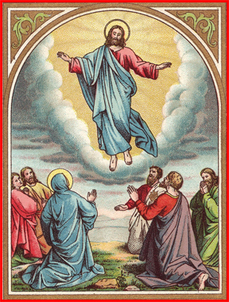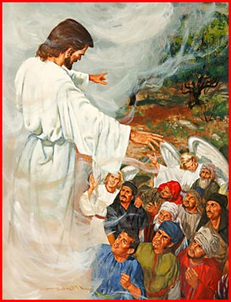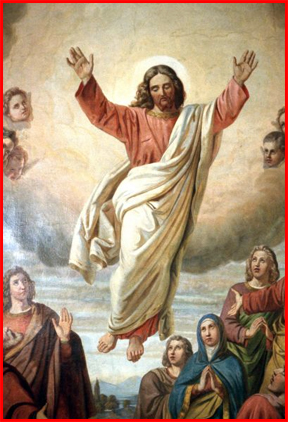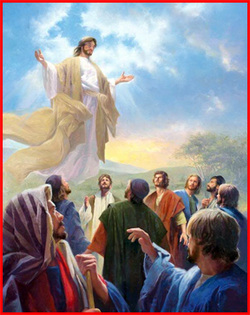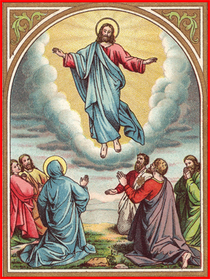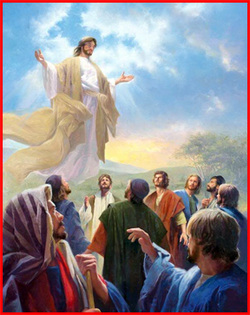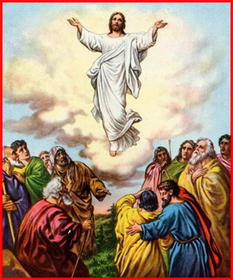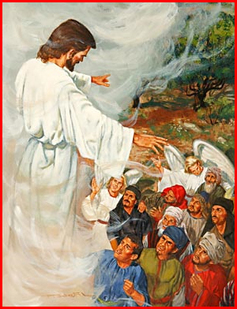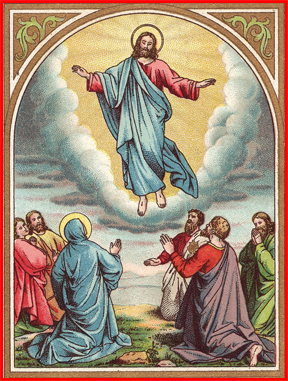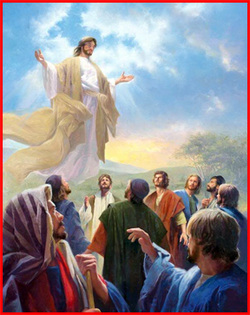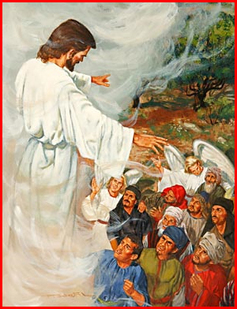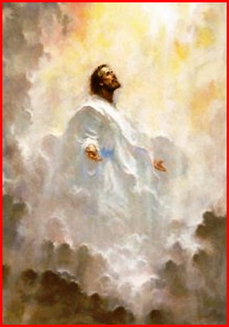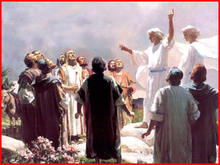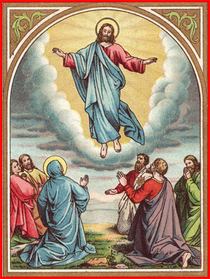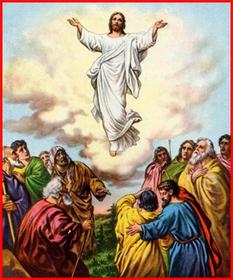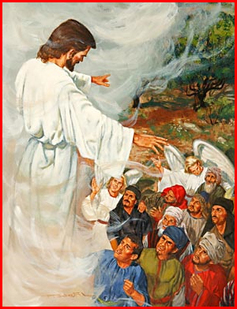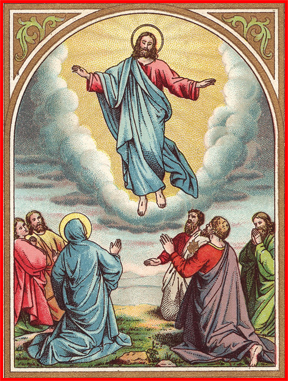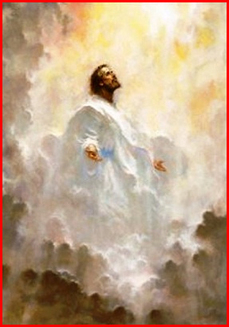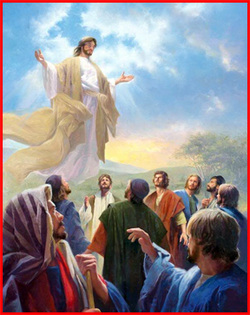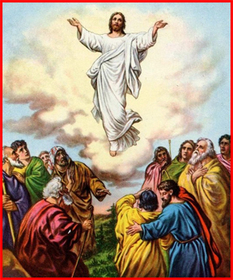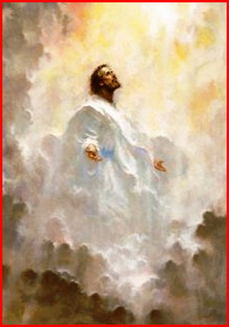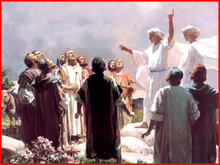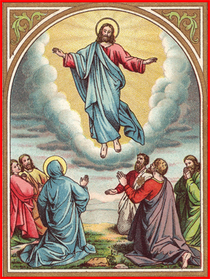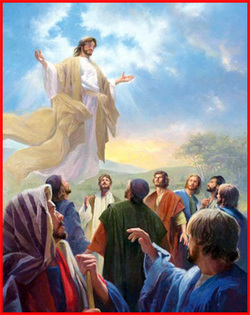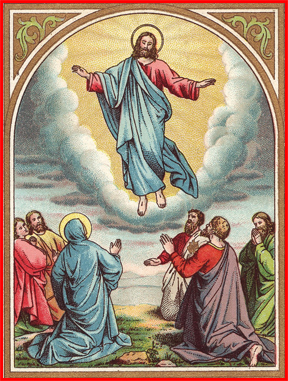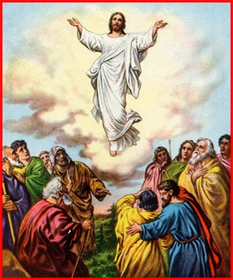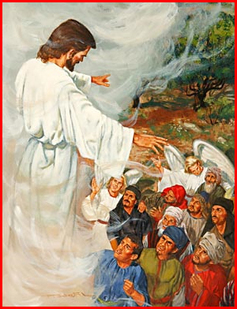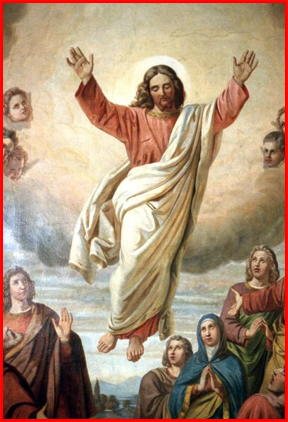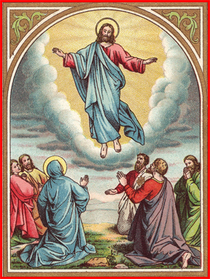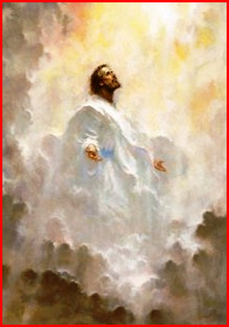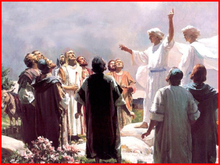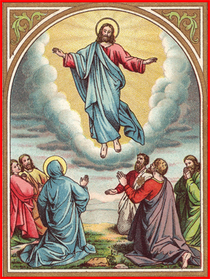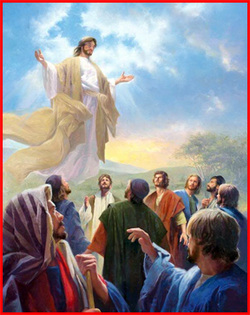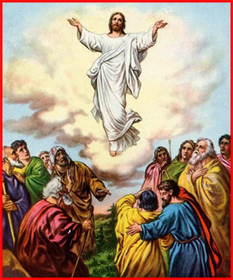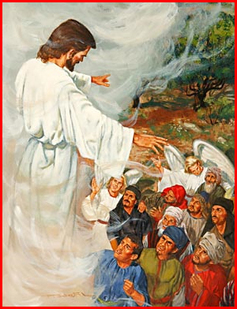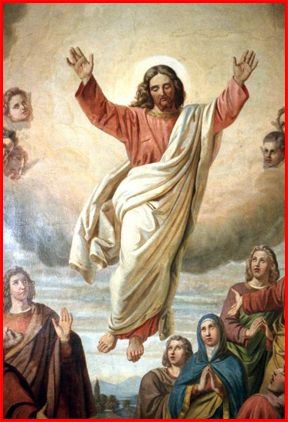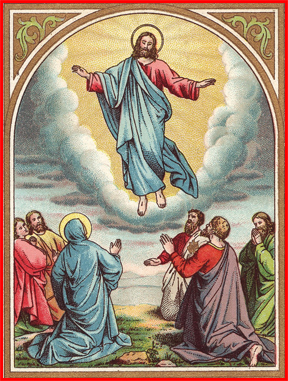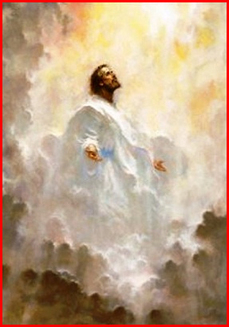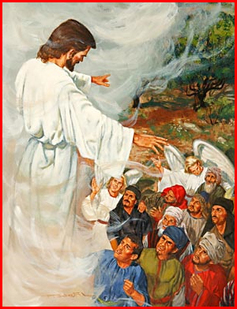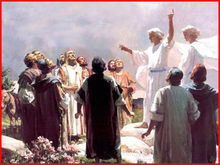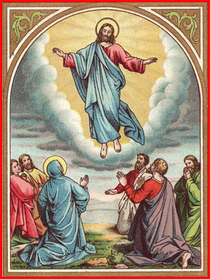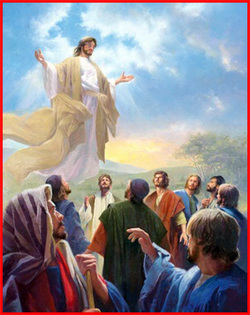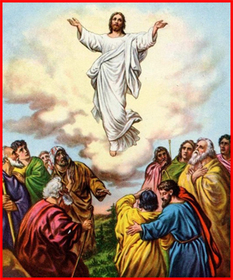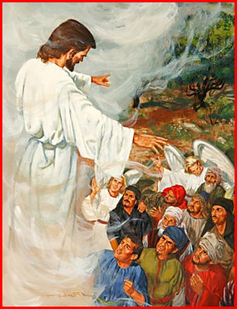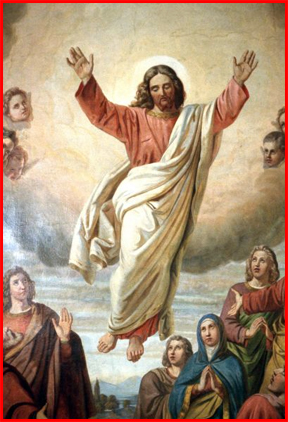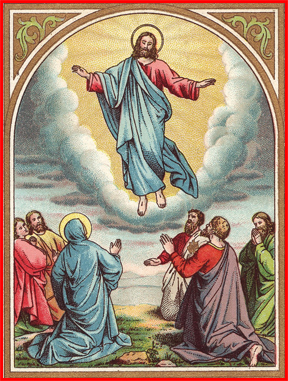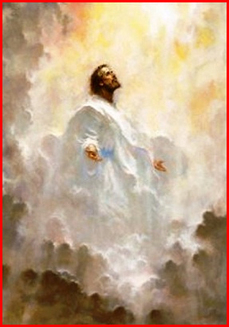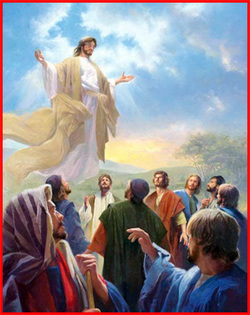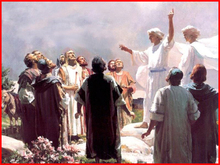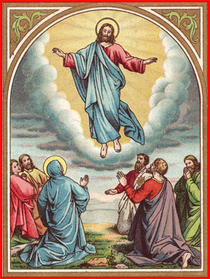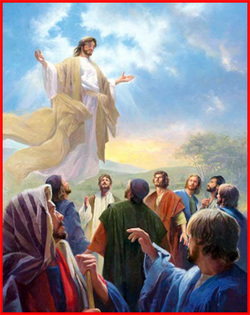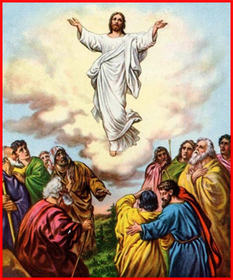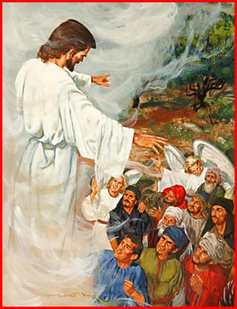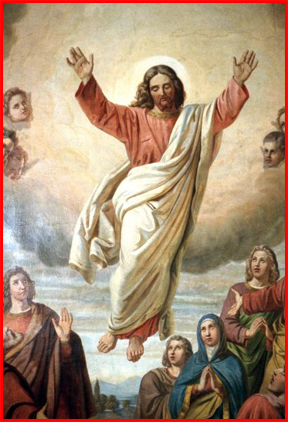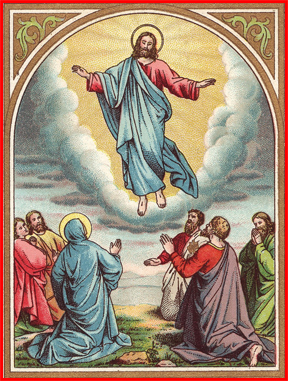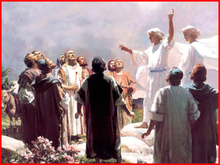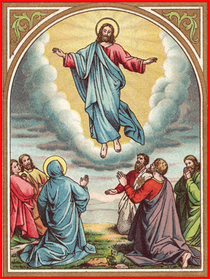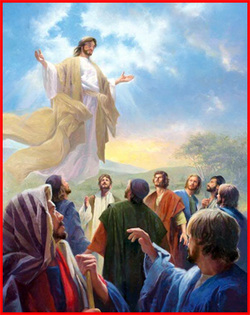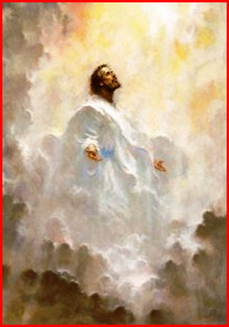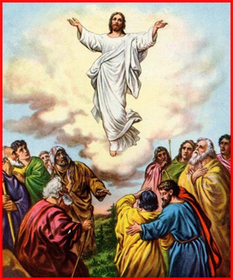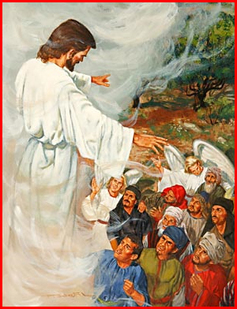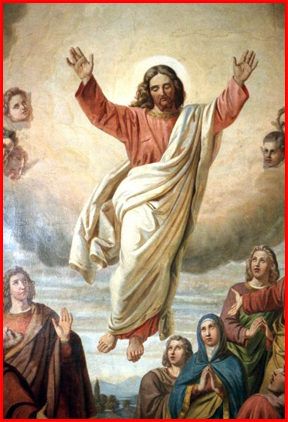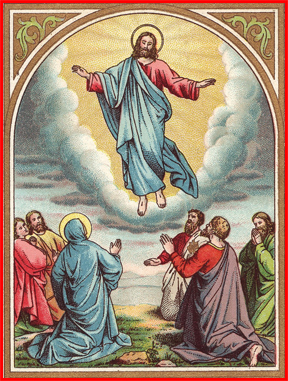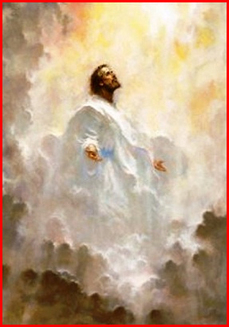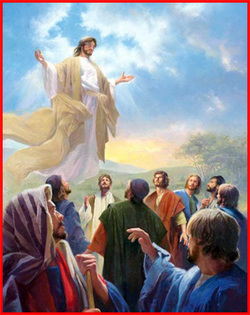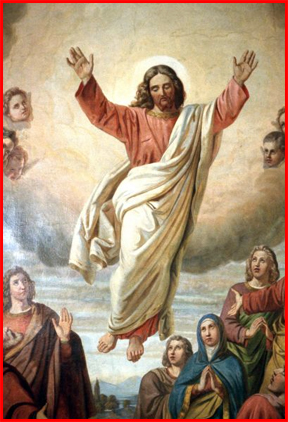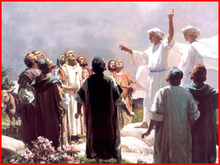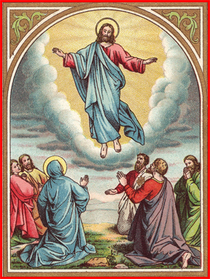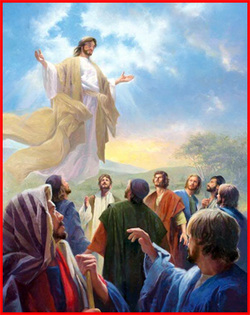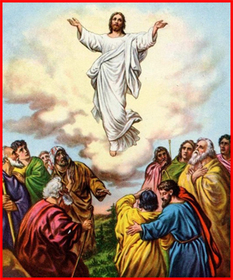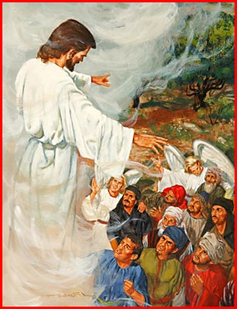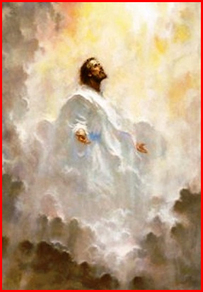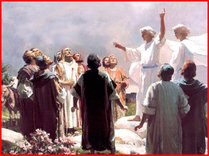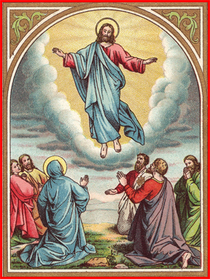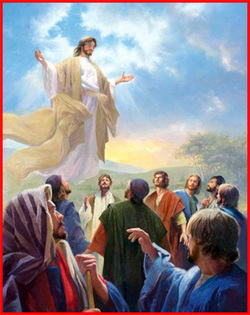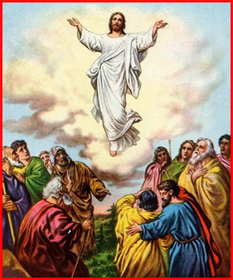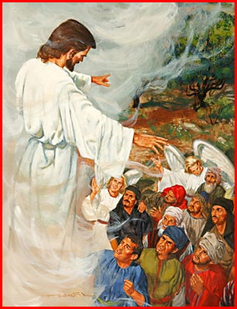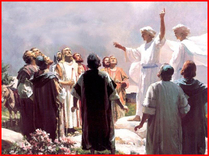| Devotion to Our Lady |
|
- Homepage
-
Daily Thoughts
- 2023 October Daily Thoughts
- Daily Thoughts Lent 2020
- Daily Thoughts for Advent 2019
- Daily Thoughts for October 2019
- Daily Thoughts for September 2019
- Daily Thoughts for August 2019
- Daily Thoughts for July
- Daily Thoughts for June
- Daily Thoughts for Easter 2019
- Daily Thoughts for Lent 2019
- Daily Thoughts for Christmas
- Daily Thoughts Easter 2022
- Sacred Heart
- Holy Ghost
-
Spiritual Life
- Holy Mass Explained
- First Friday Devotions
- First Saturday Devotions
- The Mercy of God
- Vocations
- The Path Everyone Must Walk >
- Gift of Failure
- Halloween or Hell-O-Ween?
- Ignatian Spiritual Exercises >
- Meditation is Soul-Saving
- Spiritual Communion
- Miraculous Medal
- Enrollment in Miraculous Medal
- St. Benedict Medal
- Holy Water
- Advice on Prayer
- Your Daily Mary
-
Prayers
- September Devotions
- Seven Sorrows of Our Lady
-
Novenas
>
- NV-Help of Christians
- NV-Nativity of Our Lady
- NV-Seven Sorrows
- NV- Sorrowful Heart
- NV-Pope St Pius X
- NV-La Salette
- NV-St Michael Archangel
- NV-Immaculate Heart
- NV-Assumption
- NV-Novena for Fathers
- NV-Novena for Your Mother
- NV-St Raphael Archangel
- NV-Souls in Purgatory
- NV-All Saints Day
- NV-Christ the King
- NV-Divine Motherhood
- NV-Guardian Angels
- NV-Rosary
- NV-Mirac Med
- NV- Imm Conc
- NV - Guadalupe
- NV - Nativity of Jesus
- NV-Epiphany
- NV-OL Good Success
- NV-Lourdes
- NV-St Patrick
- NV-St Joseph
- NV-Annunciation
- NV-St Louis de Montfort
- NV-OL Good Counsel
- NV-Last Supper
- NV-Passion
- NV-Pentecost
- NV-Ascension
- NV-Sacred Heart
- NV-Sacred Heart & Perpetual Help
- NV-Corpus Christi
- NV-OL of Perpetual Help
- NV-Queenship BVM
- NV-OL of Mount Carmel
- NV-St Mary Magdalen
- NV- Im Hrt
- August Devotions to IHM
- Immaculate Heart of Mary
- Litany of Dependence
- Prayers to St Mary Magdalen
- Prayers in Times of Sickness Disease & Danger
- Holy Souls in Purgatory
- Meditations on the Litany of Our Lady
- Special Feast Days
- Prayers to Mary (Mon-Sun)
- Litanies to Our Lady >
- Various & Special Needs
- Our Lady of the Rosary
- Our Lady of Mt. Carmel
- Our Lady of Perpetual Help
- Our Lady of Guadalupe
- Other titles of Our Lady
-
Rosary
- Downloads
- Consecration
- Easter Season
-
Holy Week
- Last Seven Words of Jesus >
- Characters of Passion >
- The Last Days of Christ
- Before Palm Sunday
- Palm Sunday
- Monday in Holy Week
- Tuesday in Holy Week
- Wednesday in Holy Week
- Holy Thursday (Last Supper)
- Holy Thursday (Agony & Arrest)
- Night Vigil with Christ
- Good Friday (Pilate & Herod)
- Good Friday (Way of Cross & Crucifixion)
- Saturday in Holy Week
-
Lent
- Ideas for Lent
- Daily Lenten Planner
- Daily Lenten Liturgy
- From Cold to Hot
- Lent with Aquinas
- Lent with Dom Gueranger
- Virtues for Lent
- History of Penance
- How Expensive is Sin?
- Confession of Sins
- Letter to Friends of the Cross
- Sermons for Lent
- Stations of the Cross >
- Lenten Prayers
- 7 Penitential Psalms
- Lenten Psalms SUN
- Lenten Psalms MON
- Lenten Psalms TUE
- Lenten Psalms WED
- Lenten Psalms THU
- Lenten Psalms FRI
- Lenten Psalms SAT
- Lenten Laughs
- Septuagesima
-
Christmas
- Epiphany Explained
- Suggestions for Christmas
- Food For Thought
- Christmas with Aquinas
- Christmas with Dom Gueranger
- Christmas Prayers
- Candles & Candlemas
- Christmas Sermons
- Christmas Prayers SUN
- Christmas Prayers MON
- Christmas Prayers TUE
- Christmas Prayers WED
- Christmas Prayers THU
- Christmas Prayers FRI
- Christmas Prayers SAT
- Twelve Days of Christmas >
-
Advent Journey
- Purgatory
- Christ the King
- Legion of Mary
- Scapular
-
Saints
-
Martyrs for the Faith
>
- Your Daily Martyr >
- All 365 Days of Martyrs
- Cristeros
- St Valentine & Valentine's Day
- Martyrs--Thomas Becket
- Martyrs--John the Apostle
- Holy Machabees
- Age of Martyrdom
- Carmelites of Compiegne
- Martyrs--Peter & Paul
- Martyrs--John the Baptist
- Martyrs--Andrew
- Martyrs--James the Great
- Martyrs--North American
- Martyrs--Seven Holy Sleepers
- Martyrs--Afra
- School of Martyrdom
- Martyrs--Christina
- Desert Saints >
- Saints for Sinners >
- Saints of Mary >
- History of All Saints Day
-
Martyrs for the Faith
>
- Precious Blood
- Synod 2023
-
Catechism
- Catechism Lesson 1
- Catechism Lesson 2
- Catechism Lesson 3
- Catechism Lesson 4
- Catechism Lesson 5
- Catechism Lesson 6
- Catechism Lesson 7
- Catechism Lesson 8
- Catechism Lesson 9
- Catechism Lesson 10
- Catechism Lesson 11
- Catechism Lesson 12
- Catechism Lesson 13
- Catechism Lesson 14
- Catechism Lesson 15
- Catechism Lesson 16
- Catechism Lesson 17
- Catechism Lesson 18
- Catechism Lesson 19
- Catechism Lesson 20
- Catechism Lesson 21
- Catechism Lesson 22
- Bible Study
-
Calendar
- Miracles
- Apparitions
- Shrines
- Prophecies
- Angels Homepage
- Hell
-
Church Crisis
- Conspiracy Theories
- Amazon Synod 2019 >
- Liberalism & Modernism
- Modernism--Encyclical Pascendi
- Modernism & Children
- Modernism--Documents
- The Francis Pages
- Church Enemies on Francis
- Francis Quotes
- Amoris Laetitia Critique
- Danger of Ignorance (Pius X)
- Restore all In Christ (Pius X)
- Catholic Action (Pius X)
- Another TITANIC Disaster?
- The "Errors of Russia"
- CRISIS PRAYERS
- Election Novena 2024
- The Anger Room
- War Zone
- Life of Mary
- Spiritual Gym
- Stupidity
- Coronavirus and Catholicism
- History & Facts
- Books
- Catholic Family
- Children
- Daily Quiz
-
Novena Church & Pope
- Day 01 Church-Pope Novena
- Day 02 Church-Pope Novena
- Day 03 Church-Pope Novena
- Day 04 Church-Pope Novena
- Day 05 Church-Pope Novena
- Day 06 Church-Pope Novena
- Day 07 Church-Pope Novena
- Day 08 Church-Pope Novena
- Day 09 Church-Pope Novena
- Day 10 Church-Pope Novena
- Day 11 Church-Pope Novena
- Day 12 Church-Pope Novena
- Day 13 Church-Pope Novena
- Day 14 Church-Pope Novena
- Day 15 Church-Pope Novena
- Day 16 Church-Pope Novena
- Day 17 Church-Pope Novena
- Day 18 Church-Pope Novena
- Day 19 Church-Pope Novena
- Day 20 Church-Pope Novena
- Day 21 Church-Pope Novena
- Day 22 Church-Pope Novena
- Day 23 Church-Pope Novena
- Day 24 Church-Pope Novena
- Day 25 Church-Pope Novena
- Day 26 Church-Pope Novena
- Day 27 Church-Pope Novena
- Day 28 Church-Pope Novena
- Day 29 Church-Pope Novena
- Day 30 Church-Pope Novena
- Day 31 Church-Pope Novena
- Day 32 Church-Pope Novena
- Day 33 Church-Pope Novena
- Day 34 Church-Pope Novena
- Day 35 Church-Pope Novena
- Day 36 Church-Pope Novena
- Day 37 Church-Pope Novena
- Day 38 Church-Pope Novena
- Day 39 Church-Pope Novena
- Day 40 Church-Pope Novena
- Day 41 Church-Pope Novena
- Day 42 Church-Pope Novena
- Day 43 Church-Pope Novena
- Day 44 Church-Pope Novena
- Day 45 Church-Pope Novena
- Day 46 Church-Pope Novena
- Day 47 Church-Pope Novena
- Day 48 Church-Pope Novena
- Day 49 Church-Pope Novena
- Day 50 Church-Pope Novena
- Day 51 Church-Pope Novena
- Day 52 Church-Pope Novena
- Day 53 Church-Pope Novena
- Day 54 Church-Pope Novena
- Penance Novena
- Daily WeAtheR Forecast
CLICK BELOW FOR THE NOVENA OF YOUR CHOICE (not all links are activated)
| PRAYERS (main page) | NOVENAS (main page) | EPIPHANY OF OUR LORD Jan 6 | OUR LADY OF GOOD SUCCESS Feb 2 | OUR LADY OF LOURDES Feb 11 | | ST. PATRICK Mar 17 | ST. JOSEPH Mar 19 | ANNUNCIATION March 25 | LAST SUPPER | PASSION OF OUR LORD | OUR LADY OF SORROWS Passiontide |
| OUR LADY OF GOOD COUNSEL Apr 26 | ST. LOUIS DE MONTFORT Apr 28 | QUEENSHIP OF MARY May 31 | ASCENSION OF OUR LORD | PENTECOST | | CORPUS CHRISTI | SACRED HEART | SACRED HEART & OUR LADY OF PERPETUAL HELP June 27 | OUR LADY OF PERPETUAL HELP June 27 |
| OUR LADY OF MT. CARMEL July 16 | ST. MARY MAGDALEN Jul 22 | ASSUMPTION Aug 15 | IMMACULATE HEART OF MARY Aug 22 Version 1 |
| IMMACULATE HEART Aug 22 Version 2 | POPE ST. PIUS X Sep 3 | NATIVITY OF OUR LADY Sept 8 | SEVEN SORROWS OF OUR LADY Sept 15 |
| OUR LADY OF LA SALETTE Sept 19 | ST MICHAEL ARCHANGEL Sep 29 | GUARDIAN ANGELS Oct 2 | OUR LADY OF THE ROSARY Oct 7 |
| DIVINE MOTHERHOOD OF OUR LADY Oct 11 | ST. RAPHAEL ARCHANGEL Oct 24 | CHRIST THE KING | ALL SAINTS DAY | SOULS IN PURGATORY | MIRACULOUS MEDAL Nov. 27 | IMMACULATE CONCEPTION Dec 8 | OUR LADY OF GUADALUPE Dec 12 | NATIVITY OF OUR LORD Dec 25 |
| NOVENA FOR MOTHERS | NOVENA FOR FATHERS |
| OTHER TITLES OF OUR LADY |
| PRAYERS (main page) | NOVENAS (main page) | EPIPHANY OF OUR LORD Jan 6 | OUR LADY OF GOOD SUCCESS Feb 2 | OUR LADY OF LOURDES Feb 11 | | ST. PATRICK Mar 17 | ST. JOSEPH Mar 19 | ANNUNCIATION March 25 | LAST SUPPER | PASSION OF OUR LORD | OUR LADY OF SORROWS Passiontide |
| OUR LADY OF GOOD COUNSEL Apr 26 | ST. LOUIS DE MONTFORT Apr 28 | QUEENSHIP OF MARY May 31 | ASCENSION OF OUR LORD | PENTECOST | | CORPUS CHRISTI | SACRED HEART | SACRED HEART & OUR LADY OF PERPETUAL HELP June 27 | OUR LADY OF PERPETUAL HELP June 27 |
| OUR LADY OF MT. CARMEL July 16 | ST. MARY MAGDALEN Jul 22 | ASSUMPTION Aug 15 | IMMACULATE HEART OF MARY Aug 22 Version 1 |
| IMMACULATE HEART Aug 22 Version 2 | POPE ST. PIUS X Sep 3 | NATIVITY OF OUR LADY Sept 8 | SEVEN SORROWS OF OUR LADY Sept 15 |
| OUR LADY OF LA SALETTE Sept 19 | ST MICHAEL ARCHANGEL Sep 29 | GUARDIAN ANGELS Oct 2 | OUR LADY OF THE ROSARY Oct 7 |
| DIVINE MOTHERHOOD OF OUR LADY Oct 11 | ST. RAPHAEL ARCHANGEL Oct 24 | CHRIST THE KING | ALL SAINTS DAY | SOULS IN PURGATORY | MIRACULOUS MEDAL Nov. 27 | IMMACULATE CONCEPTION Dec 8 | OUR LADY OF GUADALUPE Dec 12 | NATIVITY OF OUR LORD Dec 25 |
| NOVENA FOR MOTHERS | NOVENA FOR FATHERS |
| OTHER TITLES OF OUR LADY |
NOVENA IN PREPARATION FOR ASCENSION THURSDAY
What is a Novena?
A novena is a traditional devotion consisting of specific prayers recited on nine successive days. Besides being a form of praise, a novena is frequently offered for a particular intention. The first novena took place in the Cenacle, during the nine days preceding Pentecost, or the coming of the Holy Ghost. As a regular popular custom, this practice began in 12th century Christianity and continues to be beneficial today as a way of praying for healing, protection or other blessings for ourselves or others.
This particular novena is prayed to God in honor of and thanksgiving for the Ascension of Our Lord Jesus Christ into Heaven. Our Lord could have stayed with His Apostles on earth and helped them found the Church, but He chose to return to His true home, which is Heaven. This detachment from earth is a lesson for ourselves, for Heaven is our ture home also, if we wish to make it so. However, God will not force anyone to go to Heaven. It is our choice. We cannot make a perpetual home of both Heaven and earth. It is one or the other. We cannot serve God and mammon, and, as St. James tells us, this world is an enemy of God's.
In praying this Novena, as in the case of all prayer, it is good to begin by opening ourselves wholeheartedly to God's will, offering a simple act of trust in God's wisdom and in His providential love for us all, that disposes all things for the ultimate benefit of our souls and their salvation.
How to Pray This Novena
This novena will be largely based upon Holy Scripture, the writings of the saints and the works and sermons of various theologians. Each day of the novena is divided into the following parts: (1) a relevant quote from Holy Scripture; (2) if applicable, the actual account revealed by Our Lady to Venerable Mary of Agreda; (3) an occasional quote from the Summa Theologica of St. Thomas Aquinas; (4) an occasional quote from a saint or a pope; (5) a Mediation; (6) a Prayer; (7) after mentioning your intention, pray the Our Father and the Hail Mary; (8) a Closing Prayer.
A novena is a traditional devotion consisting of specific prayers recited on nine successive days. Besides being a form of praise, a novena is frequently offered for a particular intention. The first novena took place in the Cenacle, during the nine days preceding Pentecost, or the coming of the Holy Ghost. As a regular popular custom, this practice began in 12th century Christianity and continues to be beneficial today as a way of praying for healing, protection or other blessings for ourselves or others.
This particular novena is prayed to God in honor of and thanksgiving for the Ascension of Our Lord Jesus Christ into Heaven. Our Lord could have stayed with His Apostles on earth and helped them found the Church, but He chose to return to His true home, which is Heaven. This detachment from earth is a lesson for ourselves, for Heaven is our ture home also, if we wish to make it so. However, God will not force anyone to go to Heaven. It is our choice. We cannot make a perpetual home of both Heaven and earth. It is one or the other. We cannot serve God and mammon, and, as St. James tells us, this world is an enemy of God's.
In praying this Novena, as in the case of all prayer, it is good to begin by opening ourselves wholeheartedly to God's will, offering a simple act of trust in God's wisdom and in His providential love for us all, that disposes all things for the ultimate benefit of our souls and their salvation.
How to Pray This Novena
This novena will be largely based upon Holy Scripture, the writings of the saints and the works and sermons of various theologians. Each day of the novena is divided into the following parts: (1) a relevant quote from Holy Scripture; (2) if applicable, the actual account revealed by Our Lady to Venerable Mary of Agreda; (3) an occasional quote from the Summa Theologica of St. Thomas Aquinas; (4) an occasional quote from a saint or a pope; (5) a Mediation; (6) a Prayer; (7) after mentioning your intention, pray the Our Father and the Hail Mary; (8) a Closing Prayer.
|
|
FIRST DAY OF THE NOVENA (new meditations posted each day)
Topic to Contemplate: "Home is Where the Heart is !" Home is where your heart is! People long to be at home. Your home is whatever place you long to be. We’ve all heard or made similar expressions to the following: “I've had a lovely time visiting with you, but it’s time I was getting home!” or “It’s great to be home!” or again, “I’m homesick! I want to go home!” or something similar that you say which means that your true home is with the person or in the place that you love most. Holy Scripture Our Lord Himself points this out in Holy Scripture, when He says: “Lay not up to yourselves treasures on earth: where the rust, and moth consume, and where thieves break through and steal. But lay up to yourselves treasures in Heaven: where neither the rust nor moth doth consume, and where thieves do not break through, nor steal. For where thy treasure is, there is thy heart also” (Matthew 6:19-21). Meditation When our heart is divided between Heaven and earth, between loving God and loving the world, then we fall into the hypocrisy that Our Lord complains about: “This people honoureth Me with their lips: but their heart is far from Me” (Matthew 15:8). The problem is that, not having seen Heaven or experienced its joys, we are more than happy to place our eggs in the basket of earth and the world. We ‘feather our nest’ on earth, more than we ‘feather our nest’ in Heaven. St. Alphonsus Liguori, the Doctor of the Church, writes that when Our Lord "performed the miracle of the multiplication of the seven loaves and a few fishes, so as to satisfy the whole multitude" it was not just to satisfy a bodily hunger that He did this, "but the mystic sense is that in this world there is no food which can fill the desire of our souls. All the goods of this earth riches, honors, and pleasures delight the sense of the body, but cannot satisfy the soul which has been created for God, and which God alone can content." He then goes on to speak about "how great is the illusion of the lovers of the world who lead an unhappy life on this earth, and expose themselves to the imminent danger of a still more unhappy life in eternity ... O men, O fools, how long will you fix the affections of your hearts on this earth? Why do you love the goods of this world, which are all vanity and lies? Do you imagine that you shall find peace by the acquisition of these goods? St. Alphonsus continues: "The goods of the world are but apparent goods, which cannot satisfy the heart of man. “You have eaten,” says the Prophet Aggeus, “and have not had enough?” (Aggeus 1:6). Instead of satisfying our hunger they increase it. "These,” says St. Bernard, “provoke rather than extinguish hunger.” If the goods of this world made men content, the rich and powerful should enjoy complete happiness; but experience shows the contrary. We see every day that they are the most unhappy of men; they appear always oppressed by fears, by jealousies and sadness." "Listen to King Solomon, who abounded in these goods: “And behold all is vanity and vexation of spirit” (Ecclesiasticus 1:14). He tells us, that all things in this world are vanity, lies, and illusion. They are not only vanity, but also affliction of spirit. They torture the poor soul, which finds in them a continual source, not of happiness, but of affliction and bitterness." (St. Alphonsus Liguori, Sermon for the 6th Sunday after Pentecost) How slow we are to learn and believe! Our attitude is one of a doubting Thomas! We say, in a manner similar to St. Thomas, "Unless I personally see and experience that money, possessions and wealth are harmful to me, I will not believe!" After the resurrection of Our Lord, the Apostles were still expecting Him to conquer all that lay before Him in a physical, material and worldly manner:. "They therefore who were come together, asked Him, saying: 'Lord, wilt thou at this time restore again the kingdom to Israel?'" Jesus would conquer, but He would conquer spiritually. He had told Pilate, before being crucified: "My kingdom is not of this world. If My kingdom were of this world, My servants would certainly strive that I should not be delivered to the Jews: but now My kingdom is not from hence" (John 18:36). Which kingdom do we seek to live in? Which kingdom do we love the most? Which kingdom takes up most of our time? The litmus test is really simple. Perhaps the answer is confusing and humiliating. Perhaps we are even afraid to take the test for fear of seeing the result! Our Prayer O Lord Jesus Christ, Who didst teach us to keep our minds and hearts detached from the mammon of this earthly life, telling the rich young man to "go sell what thou hast, and give to the poor, and thou shalt have treasure in Heaven: and come follow Me" (Matthew 19:21). Grant that I may hear these words with joy and not with the sadness that young rich man heard them. His heart was not in Heaven, but firmly entrenched upon earth--"he went away sad: for he had great possessions" (Matthew 19:22). Detach my heart from the things of this world, since I feel powerless and reluctant to do so! Grant me a love of the things of Heaven, for I admit that, at this moment in time, they do not captivate me as much as they should. Take my mind and heart with Thee to Heaven, so that I may never lose those true treasures promised to those who do violence to themselves (Matthew 11:12), by falling for the allurements of the false treasures of this earth. [Mention Intention] Let us pray: Grant, we beseech Thee O almighty God, that having seen Thy beloved Son ascend to His heavenly home, our minds and hearts may rise above the perishable things of this earth and look forward with great joy to eternal rewards and happiness of Heaven. We ask this through the glorious and Immaculate Heart of Thy most Holy Mother. Amen. Say the Our Father and the Hail Mary. Final Invocation: Jesus ascending into Heaven! Raise our hearts above the things of this world! |
|
|
SECOND DAY OF THE NOVENA (new meditations posted each day)
Topic to Contemplate: "You Will See God!" Home is where your heart is! People long to be at home. Your home is whatever place you long to be. We’ve all heard or made similar expressions to the following: “I've had a lovely time visiting with you, but it’s time I was getting home!” or “It’s great to be home!” or again, “I’m homesick! I want to go home!” or something similar that you say which means that your true home is with the person or in the place that you love most. Holy Scripture Our Lord Himself points this out in Holy Scripture, when He says: “Lay not up to yourselves treasures on earth: where the rust, and moth consume, and where thieves break through and steal. But lay up to yourselves treasures in Heaven: where neither the rust nor moth doth consume, and where thieves do not break through, nor steal. For where thy treasure is, there is thy heart also” (Matthew 6:19-21). Meditation Perfect happiness cannot be found in this world. It certainly cannot be found in creatures, for they were not clothed with the power to give it. God has promised a happiness so unspeakably great, that the Apostle St. Paul, who "was caught up into Paradise" (2 Corinthians 12:4) and was favored with a glimpse of Heaven, tells us that mortal "eye hath not seen, nor ear heard, neither hath it entered into the heart of man, what things God hath prepared for them that love Him" (1 Corinthians 2:9). This happiness—which is now so incomprehensible to us—is none other than the possession and enjoyment of God Himself in the Beatific Vision, as well as the perfect satisfaction of every rational craving of our nature in the glorious resurrection of the body. It is on this glorious happiness that we are going to meditate. We Envision Heaven in Different Ways In meditating upon the happiness in store for the children of God, we are very apt to build up a Heaven of our own, which naturally takes the shape and color which our sorrows, needs, and sufferings lend to it. The poor man, for instance, who has suffered much from toil and want, looks upon Heaven as a place of rest, abounding with all that can satisfy the cravings of nature. Another, who has often endured the pangs of disease, looks upon it as a place where he shall enjoy perpetual health of body and mind. Another again, who, in the practice of virtue, has had all manner of temptations from the Devil, the world, and his own flesh, delights in viewing Heaven as a place totally free from temptation, where the danger, or even the possibility, of sin shall be no more. All these, and other similar views of Heaven, are true inasmuch as they represent it as a place entirely free from evil and suffering, and, at the same time, as an abode of positive happiness. Nevertheless, they are all imperfect views, because not one of them takes in the whole of heavenly bliss, such as God has revealed it to us. They all ignore the Beatific Vision, which is the essential happiness of Heaven. Very few indeed understand what is implied in the vision of God. Many imagine that we shall simply gaze upon an object whose surpassing perfection will make us happy in a way that we do not understand. These do not fully comprehend what is meant by the Beatific Vision, although they view Heaven as a place where we shall see God. The Two Types of Happiness in Heaven There is a happiness which the soul receives immediately from God in the Beatific Vision. There is another happiness which comes from the additional pleasures or joys which come to the blessed from creatures. The Beatific Vision is not only the essential happiness of Heaven, but it is also that which imparts to the saints the power of appropriating all the other inferior joys with which God completes the blessedness of His children. As this is a point of importance, we shall endeavor to understand it more clearly by an illustration. A man who is gifted with perfect health of body and mind not only enjoys life itself, but he likewise receives pleasure from the beauties of nature, from literature, amusements, and society. Now, suppose he lose his health and is thrown on a bed of sickness. He is no longer able to enjoy either life itself or its pleasures. What is all the beauty of earthly or heavenly objects to him now? What are amusements, and all the joys of sense, which formerly delighted him so much? All these things are now unable to give him any pleasure, because he has lost his health, which afforded him the power of appropriating the pleasures of life. Therefore, we say that health is essentially necessary, not only to enjoy life itself, but also to relish its pleasures. So, too, is it in Heaven. The Beatific Vision is necessary not only to enjoy the very life of Heaven, but likewise to enjoy the accidental glory with which God perfects the happiness of His elect. The Meaning of the Beatific Vision "Beatific Vision" is composed of three Latin words: beatus, happy; facio, I make; and visio, a sight — all of which, taken together, make up and mean a happy-making sight. Therefore, in its very etymology, Beatific Vision means a sight which contains in itself the power of banishing all pain and all sorrow from the beholder, and of infusing, in their stead, joy and happiness.The Beatific Vision, considered as a perfect and permanent state, consists of three acts: the sight, or vision, of God; the love of God; and the enjoyment of God. These three acts, although really distinct from each other, are inseparable, for, if even one of them is excluded, the Beatific Vision no longer exists in its integrity. The Sight of God The sight, or vision, of God means that the intellect, which is the noblest faculty of the soul, is suddenly elevated by the light of glory and enabled to see God as He is. It is, thus, a vision in which the soul sees God, face-to-face — not indeed with the eyes of the body, but with the 'eyes' of the intellect. For God is a spirit and cannot be seen with material eyes. Hence, it is the soul that sees God, but when it does, the soul sees Him more clearly and perfectly than we can now see anything with our material eyes. This perfect vision, or knowledge, of God, is not only the first essential element of the Beatific Vision, but it is the very root of the other acts which will complete or perfect it. Thus we say of the sun that it is the source of the light, heat, life, and beauty of this material world, for, if the sun were blotted out from the heavens, this now beautiful world would, in one instant, become the dark and silent grave of every living creature. This is only a faint image of the darkness and sadness which would seize upon the blessed, if we could suppose that God would at any time withdraw from them the clear and unclouded vision of Himself. We say, therefore, that the vision of the Divine Essence is the root or source of the Beatific Vision. The Love of God The second element of the Beatific Vision is an act of perfect and inexpressible love. It is the sight or knowledge of God as He is that produces this love, because it is impossible for the soul to see God in His divine beauty, goodness, and unspeakable love for the soul without loving Him with all the power of its being. It would be easier to go near an immense fire and not feel the heat, than to see God in His very essence and yet not be set on fire with divine love. It is, therefore, a necessary act — that is, one which the blessed could not possibly withhold, as we now can in this world. For, with our imperfect vision of God, as He is reflected from the mirror of creation, we can, and unfortunately do, withhold our love from Him — even when the light of faith is superadded to the knowledge we might have of Him from the teachings of nature. This is not so in Heaven. There, the blessed see God as He is, and therefore, they love Him spontaneously, intensely, and supremely. The Enjoyment of God The third element of the Beatific Vision is an act of excessive joy, which proceeds spontaneously from both the vision and the love of God. It is an act by which the soul rejoices in the possession of God. He is the soul's own God, the soul's own possession, and in the enjoyment of Him, the soul's cravings for happiness are completely gratified. Evidently, then, the Beatific Vision necessarily includes the possession of God, because without it, this last act could have no existence, and the true happiness of the blessed would not be complete, if we could suppose it to exist at all. A moment's reflection will make this as evident as the light of day. A beggar, for instance, gazes upon a magnificent palace, filled with untold wealth, and all that can gratify the senses. Does the mere sight of it make him happy? It certainly does not, because it is not and never can be his. He may admire its grand architecture and exquisite workmanship and thus receive some trifling pleasure; but, as he can never call that palace nor its wealth his own, the mere gazing upon it, and even loving its beauty, can never render him happy. For this, the possession of it is essential. Again, the starving beggar gazes upon the rich man's table loaded with every imaginable luxury. Does that mere sight relieve the pangs of hunger? It certainly does not. It rather adds to his wretchedness by intensifying his hunger without satisfying its cravings. So it would be in Heaven, if we could imagine a soul admitted there and allowed to gaze upon the beauty of God, while not able to possess or enjoy Him. Such a sight would be no Beatific Vision for that soul. The possession of God is, therefore, absolutely necessary in order that the soul may enjoy Him and rest in Him as its last end. Hence, the act of seeing God is also the act by which the blessed possess God and enter into the joy of their Lord. God Prepares You for Heaven God is the great and mighty King who finds your soul in the wilderness of this world. To use the forcible words of Scripture, He found you "wretched, and miserable, and poor, and blind, and naked" (Apocalypse 3:17). Moved with compassion, He brought you into His holy Church. There, He washed you with His own Precious Blood, clothed you with the spotless robe of innocence, adorned you with the gifts of grace, and adopted you as His own child. Then He commanded His ministers and others to educate you for Heaven. By His grace, and your own cooperation, your soul is being gradually developed into a more perfect resemblance to Jesus Christ, who, in His human nature, is the standard of all created perfection. But you are blind yet, and must remain so until your heavenly Father calls you home. When that happy day dawns, you will leave this world, your eyes will be opened by the light of glory, and you will see God as He is, in all His glory and magnificence. You will see yourself as you are, adorned with the jewels of the many graces He has bestowed upon you. You will also see the beautiful angels and saints, clothed with the beauty of God Himself, standing around His throne to hear the sentence that will admit you into their society. This sight of the living God, and of all the magnificence which surrounds Him, will fill your soul with a perfect knowledge of Him; and this knowledge will produce a most ardent and perfect love. And when He presses you to His bosom, proclaims you one of His children, and commands all to honor and love you as such, your joy will he full. This will he emphatically a Beatific Vision for you. You will then enter into the possession and enjoyment of God, who alone can fill the soul with pure and permanent happiness. Our Prayer O Lord Jesus Christ, Who didst teach us to keep our minds and hearts detached from the mammon of this earthly life, telling the rich young man to "go sell what thou hast, and give to the poor, and thou shalt have treasure in Heaven: and come follow Me" (Matthew 19:21). Grant that I may hear these words with joy and not with the sadness that young rich man heard them. His heart was not in Heaven, but firmly entrenched upon earth--"he went away sad: for he had great possessions" (Matthew 19:22). Detach my heart from the things of this world, since I feel powerless and reluctant to do so! Grant me a love of the things of Heaven, for I admit that, at this moment in time, they do not captivate me as much as they should. Take my mind and heart with Thee to Heaven, so that I may never lose those true treasures promised to those who do violence to themselves (Matthew 11:12), by falling for the allurements of the false treasures of this earth. [Mention Intention] Let us pray: Grant, we beseech Thee O almighty God, that having seen Thy beloved Son ascend to His heavenly home, our minds and hearts may rise above the perishable things of this earth and look forward with great joy to eternal rewards and happiness of Heaven. We ask this through the glorious and Immaculate Heart of Thy most Holy Mother. Amen. Say the Our Father and the Hail Mary. Final Invocation: Jesus ascending into Heaven! Raise our hearts above the things of this world! |
|
THIRD DAY OF THE NOVENA (new meditations posted each day)
Topic to Contemplate: "In Heaven, God Will Perfect You!" Holy Scripture On earth, we were told by Jesus to “Be ye therefore perfect, as also your heavenly Father is perfect” (Matthew 5:48). In the Beatific Vision, "We shall be like Him, because we shall see Him as He is" (1 John 3:2). Meditation Yesterday, we saw meaning of the Beatific Vision, and that it is not a mere gazing upon God, but a true possession and enjoyment of Him. We also saw that the Beatific Vision implies a most intimate union with God, in which the soul is made a partaker of the divine nature, in a far higher degree than is attainable in this world. When we speak of our intimate union with God in the Beatific Vision, we understand a moral union, and not a physical or a personal one. Hence, however intimate our union with God may be, we shall always retain our personality and never be merged into God. In this world, however intimate the union which exists between friend and friend, parent and child, or husband and wife may be, these persons all retain their respective personalities. So shall it be in Heaven. We shall see and possess God; we shall be united to Him in an intimate manner, but we shall ever retain our distinct personality and individuality. When a drop of water falls into the ocean, it is absorbed and completely lost in that immense volume of water. This is no paradigm of our union with God. But the drop of oil is such a paradigm, for while it floats on the bosom of the deep, it does not mingle with the water, nor lose its individuality. It remains a drop of oil. God Will Perfect You Not only shall we thus retain our personality when united to God in the Beatific Vision, but we shall, moreover, retain all that belongs to the reality of human nature. For, as St. Thomas teaches, "the glory of Heaven does not destroy nature, but perfects it." Therefore, when Scripture tells us that "we shall be changed," we must not imagine that we shall be changed into angels, or into some other nature different from the human. The change means a supernatural elevation and perfection of our whole nature, and not its destruction. The transition, or change, of the child into the man neither changes nor destroys the faculties of his mind or the senses of his body; nor does it create new powers or faculties which he had not before. His gradual growth into manhood only develops and perfects what the hand of God had placed in his nature on the day of his creation. This gradual development of our nature to its perfection, in the natural order, illustrates the wonderful supernatural perfection which the power of God will work in us in both the Beatific Vision and the glorious resurrection of the body. For, however great and elevated we may then be, our now existing natural powers will neither be changed nor destroyed. According to St. Thomas Aquinas, the human soul has a threefold resemblance to God. It is like God by nature, by grace, and by glory. The likeness to God by nature is found in all men, hut is imperfect. The likeness by grace is far more perfect; it is found in the just only, and it is seen in its full perfection in the blessed. We shall, therefore, try to fathom out the meaning of St. John when he says, "We shall be like Him: because we shall see Him as He is," as well as the saying of St. Peter, who asserts that we shall be "made partakers of the divine nature" (2 Peter 1:4.) Look At it This Way Suppose you enter an artist's studio, just as he has drawn the outlines of a portrait. All the essential features are there the shape of the head, the eyes, ears, mouth, and whatever else is necessary to constitute the human face—and it already bears a striking resemblance to the man who is sitting for his portrait. You return in a few days, and, although the portrait is yet far from being finished, the coloring has added so much that it is far more beautiful and perfect than when you first saw it. Again, you see it when it is completely finished, framed, and exposed to public view. How perfect! How lifelike it is! It actually seems to live and breathe. How vast a difference between this exquisitely finished painting and the mere outlines you first saw! This illustration teaches us, better than abstract words could do, how the human soul is like God from the very first, and how that likeness gradually increases by grace and the practice of virtue, until it receives the last touch and finish in the Beatific Vision. From the very first moment of its existence, the soul is like God, because it is a spirit and therefore immortal. It is endowed with intelligence, free will, memory, and whatever else belongs to a spiritual substance. Evidently, this is already the image of God, although, compared with what it will be by grace and the Beatific Vision, it is as yet nothing more than the mere outlines. Next comes Baptism, by which the soul is raised to the supernatural state. It is washed with the blood of Jesus and clothed with the robe of innocence, which, if we may use the expression, begins the coloring or beautifying process. Faith, hope, and charity are infused into the soul, which enables it to lead a supernatural life. Then come other sacraments, whose purpose is to wash away stains, to remove imperfections, and to nourish, strengthen, beautify, and gradually develop a greater resemblance to God. God Calls For Your Cooperation But there is an immense difference between the senseless image we saw on the canvas and the soul. The portrait is a lifeless image, which is totally passive, and has, therefore, nothing whatever to do with its gradual growth and its resemblance to the original. It is not so with the soul. It is a living and rational image of the eternal God and has the power to aid very materially in its gradual development and in its greater resemblance to the original, which is God. It has not only the power, but also the strict obligation of cooperating with God in perfecting what He began without its cooperation. Hence, while of itself the soul is incapable of having even a good thought, aided by the grace of God it has not only good thoughts and desires, but also the strength to carry them into effect. With God's assistance, it can and does reproduce in itself the virtues which Jesus taught and practiced—His humility, purity, meekness, obedience, patience, and resignation to God's will. Especially does it reproduce His life of love — love for God and love for man. As soon as this divine charity becomes the mainspring of its actions, everything the soul does develops in it a greater resemblance to God. Then, not only prayer, the sacraments, spiritual reading, and other spiritual exercises, but also voluntary mortifications, temptations from the Devil, the world, and the flesh—even eating, drinking, and innocent recreations—all help powerfully to develop and perfect in the soul the image of God. For, as St. Paul tells us, "To them that love God, all things work together unto good" (Romans 8:28). If you could now see a soul at the first moment of its existence, you would see the image of God begun. If you could see the soul again immediately after Baptism, it would appear far more beautiful, because it would then be clothed with the robe of innocence and beautified by the grace of God. But if you could see that same soul after ten, twenty, or more years of a holy life, you would scarcely believe that it was the same soul, so much more God-like and beautiful would it have become. But again, if you could see the soul united to God in the Beatific Vision, you would be so overpowered with its dazzling splendor and unearthly beauty, that you would be ready to fall down and adore it thinking that it was God Himself you were seeing and not His image. The soul would have to prevent this adoration, by assuring you that whatever excellence you beheld in it was, after all, that of a mere creature. This is what happened even to St. John, who had already seen so many and such wonderful visions. When the bright angel stood before him to reveal the secrets of God, he said, "And I fell down before his feet to adore him. But he saith to me, 'See thou do it not: I am thy fellow servant, and of thy brethren, who have the testimony of Jesus. Adore God.' " (Apocalypse 19:10). St. Augustine says that "the angel was so beautiful and glorious that St. John actually mistook him for God, and would really have given him divine worship, had not the angel prevented it by declaring who he was." From all this, we begin to see what St. John means when he tells us that we shall be like God, "because we shall see Him as He is." The Vision of God Will Make Your Soul Like Him Our likeness to God was begun on the very first day of our existence. It was gradually developed by God's grace and the sacraments and by our own cooperation with all the helps of God. But during life, the process of development was slow so very slow, that we were at times tempted to think it had ceased altogether. But in the Beatific Vision, the process is rapid as a flash. The soul is suddenly transformed into that degree of likeness to God which it has deserved by a holy life. The soul is made to be like God, because it sees Him as He is. It is this glorious vision which contains in itself this transforming power and which assimilates the soul to God. In this world a deformed man may gaze upon a beautiful object without becoming beautiful thereby. A poor man may gaze upon a rich man, but remains as poor as ever. An ignorant man may gaze upon a philosopher, and nevertheless remains as ignorant as before. It is not so in Heaven. The vision of God has a transforming power—that is, it has the power of communicating to the beholder attributes which he did not have before, or possessed only potentially. Thus the soul, because it sees God as He is, is filled to overflowing with all knowledge. It becomes beautiful with the beauty of God, rich with His wealth, holy with His holiness, and happy with His own unutterable happiness. In a word, by the vision of God, the soul is made a partaker of the divine nature, and, like a very god, it shines unto all eternity in the divine brightness. A diamond, carefully cut and perfectly polished, glitters and shines in the sun with exceeding brilliancy. It not only reflects the light, but also absorbs it into itself, so as to shine even in the dark with the light it has absorbed. It actually becomes, as it were, a little sun, shining with its own light. It has thus become a partaker of the sun's nature, while it retains its own particular diamond nature and individuality. This is an image of what takes place in the Beatific Vision. While it was in this world, God had polished that soul, by the sacraments and by sufferings, and now that it is in His presence and sees Him as He is, it shines and sparkles in His light with unspeakable splendor. The soul reflects and absorbs the divine light and beauty of God. It is like God, because it sees Him as He is; it is made a partaker of the divine nature, while it retains its own human nature and personal identity. Strive to Perfect your Soul Now, Christian soul, meditate well on all this. Endeavor to fathom the bliss of the saints when they see themselves like God in so eminent a degree. Remember that you were created to enjoy the unspeakable happiness of seeing God and of being made a partaker of the divine nature. But remember, too, that God, who created you without your cooperation, will not save you without it. He never will polish your soul into a jewel fit for Heaven, in spite of yourself. You must, therefore, cooperate with Him and do His holy will in all things. However painful may be the trials He sends you, they are all so many strokes to take away some roughness or deformity which would prevent your soul from being perfectly like Him. Every act you perform, while in the state of grace, adds a new feature of beauty to your soul and therefore prepares it the better to receive the finishing touch in the Beatific Vision and to shine with greater splendor as a perfect image of the living God. Our Prayer O Lord Jesus Christ, Who didst teach us to keep our minds and hearts detached from the mammon of this earthly life, telling the rich young man to "go sell what thou hast, and give to the poor, and thou shalt have treasure in Heaven: and come follow Me" (Matthew 19:21). Grant that I may hear these words with joy and not with the sadness that young rich man heard them. His heart was not in Heaven, but firmly entrenched upon earth--"he went away sad: for he had great possessions" (Matthew 19:22). Detach my heart from the things of this world, since I feel powerless and reluctant to do so! Grant me a love of the things of Heaven, for I admit that, at this moment in time, they do not captivate me as much as they should. Take my mind and heart with Thee to Heaven, so that I may never lose those true treasures promised to those who do violence to themselves (Matthew 11:12), by falling for the allurements of the false treasures of this earth. [Mention Intention] Let us pray: Grant, we beseech Thee O almighty God, that having seen Thy beloved Son ascend to His heavenly home, our minds and hearts may rise above the perishable things of this earth and look forward with great joy to eternal rewards and happiness of Heaven. We ask this through the glorious and Immaculate Heart of Thy most Holy Mother. Amen. Say the Our Father and the Hail Mary. Final Invocation: Jesus ascending into Heaven! Raise our hearts above the things of this world! |
|
FOURTH DAY OF THE NOVENA (new meditations posted each day)
Topic to Contemplate: "In Heaven, You Will Be Filled With Knowledge!" Holy Scripture "He hath given us understanding that we may know the true God" (1 John 5:20). Meditation In the Beatific Vision, our intellect is glorified and our thirst for knowledge completely satisfied. Man was created with a thirst for knowledge which can never be satiated in this world. Sin, which greatly weakened and darkened his mental faculties, has not taken away his desire and love for knowledge. And the knowledge which he acquired by eating the forbidden fruit increased rather than satisfied his thirst. But all his efforts to reach the perfection of knowledge, even in the natural order, have been fruitless. With all his boasted discoveries in astronomy, chemistry, geology, mechanics, and other kindred sciences, his knowledge of nature's secrets is still very limited. But if he could even master every natural science and compel nature to reveal its most hidden secrets, his thirst for knowledge would still remain unsatisfied. Let us, for the sake of illustration, imagine a man so gifted that he not only knows all that can be known about this world, but also soars beyond it and learns the exact size, distances, laws, and relations to each other of the countless worlds that shine in the blue sky. Supposing these distant orbs to be peopled like ours, imagine that this man knows the character, manners, laws, and languages of their respective inhabitants. He knows, moreover, all their sciences, and the characters of their plants, animals, and minerals. In a word, he sees and knows every star as perfectly as he knows his own house and its inmates. What vast knowledge that man would possess! He would certainly be far more learned than all the philosophers that ever lived, taken together. But would his thirst for knowledge be completely quenched? Would he say that his mind is so completely full that he can long for no more, or that it can contain no more? No, he could never say that, for the knowledge of the creature alone can never completely fill or satisfy the mind. We are little, and very limited, it is true, and if we are aiming at Christian perfection, we are accustomed to look upon ourselves as such. And the more often we compare our borrowed perfections with those of God, the more deeply convinced of our littleness shall we become. But yet, however little we may be, we have, in a certain sense, capacity for the infinite, and for it, only the infinite is sufficient. Hence, as all the wealth of this world could never make any man perfectly happy, so neither could the perfect knowledge of every creature perfectly satisfy his cravings after knowledge. The one is as finite as the other, and consequently, neither could do that for which the infinite alone is sufficient. Yet, this is not all. Not only is the full knowledge of the whole natural order incapable of satisfying man's desire for knowledge, but not even all the knowledge of God and of the supernatural order, so far as they can be known in this world by faith and theology, ever did or ever could make a man say, "It is enough; I ask for no more." Indeed, the very reverse takes place. For if there is any knowledge that intensifies thirst for more, it is precisely the imperfect knowledge of God we have by faith and the contemplation of Him in His creatures. The theologians have studied and learned much. They have thrown much light on the dark mysteries of Revelation. Yet what they know is only as a drop in the boundless ocean of God's unfathomable being. With all the vast knowledge of God which they have acquired, they are still constrained to cry out with St. Paul, "Oh, the depth of the riches of the wisdom and of the knowledge of God! How incomprehensible are His judgments, and how unsearchable His ways!" (Romans 11:33). Do what we may — read the Holy Scriptures, study, pray, meditate — we can never see and know God as He is, so long as we remain pilgrims in this world. The saying of St. Paul will ever remain true: "We now see through a glass in a dark manner" (1 Corinthians 13:12) — that is, imperfectly and unsatisfactorily. On earth, you see only the reflection of God In the original Greek, St. Paul uses the word mirror, which is also the word used in the Latin Vulgate, per speculum—that is, by means of a mirror. The meaning, therefore, of St. Paul is not that we see through a glass by transmitted light, as when we look through a telescope, but as when we see an image reflected in a mirror. Let us suppose a man so circumstanced in this world that he has never seen the sun, or its light, except as reflected in the moon. He has heard of the sun's immense size and its bewildering distance from us, of its dazzling splendor and keen, life-imparting power, whereby it gives life, growth, and beauty to every living thing. To this man, the moon is a mirror wherein the sun is imperfectly reflected. Although he is unable to see the sun himself, he judges from the splendor and beauty of the moon that it must be grand, glorious, and magnificent beyond the power of words to express. This illustrates the meaning of St. Paul when he says that we now see God by means of a mirror. All creatures — the sun, the moon, and the stars, the vast expanse of the ocean, the earth, trees, flowers, animals, and man especially — are a grand mirror in which the perfections of God are reflected in a dark and imperfect manner. We see in them all faint reflections of His divine beauty, of His wisdom, of His goodness, of His power, and of His other perfections; but as He is, we cannot see. Therefore, all the knowledge of God which we can derive from the contemplation of creatures, adding even all that He has been pleased to reveal of Himself, far from satisfying, rather increases the thirst of the soul for more. In Heaven, You Will See God Face-To-Face They who know most about God are the saints, and they arc the very ones who can say, with the royal prophet, "As the hart panteth after the fountains of water, so my soul panteth after Thee, O God. My soul hath thirsted after the strong, living God; when shall I come and appear before the face of God?" (Psalm 41:2-3). This is the continual sigh and cry of the saints, because the knowledge which they have of God in creatures, and even in their visions, does not satisfy their longings. But listen to St. Paul: "We now see through a glass in a dark manner; hut then face-to-face. Now I know in part; but then I shall know even as I am known" (1 Corinthians 13:12). How consoling these words of inspiration are! Yes, in Heaven, we shall see God as He is, face-to-face. We shall see Him in all His adorable perfections by a clear and unclouded perception of His Divine Essence. We shall gaze with unspeakable delight and rapture upon that "beauty, ever ancient and ever new" (St. Augustine, Confessions, Bk. 10, ch. 27). We shall drink in all knowledge at its living source — unmingled with error or doubt. All the darkness and ignorance caused by sin will forever vanish in the light of God's countenance, as the darkness of night disappears before the rising sun. We shall then see, as it is, the august and awe-inspiring mystery of the most Holy Trinity — the deepest, the sublimest, and the most incomprehensible of all those that God ever revealed to man. We shall then see the eternal Father, ever begetting His only Son, and the Holy Spirit ever proceeding from both Father and Son. We shall then see how They are really three distinct Persons, and yet one undivided Essence. We shall see, face-to-face, and as He is, this great, eternal God, in the eternity of His duration, in the abysses of His unsearchable judgments, in the sweetness of His goodness, in the tenderness of His mercies, in the spotlessness of His sanctity, in the severity of His justice, in the might of His irresistible power, in the charms of His captivating beauty, and in the splendor of His majesty and glory. In a word, we shall no longer sec God as He is reflected in the mirror of creation, but as He is in Himself. This is the vision which no mortal has seen, or can see in this world. This is the vision which pours torrents of knowledge into our souls and fills them to overflowing. No more searching of books; no more wasting away of health and strength in the pursuit of knowledge; no more going to learned men, as the beggar goes to the rich for bread. No more perplexing and torturing doubts that perhaps we do not have the truth. The light of glory will have opened our eyes, and we will see all truth as it is and will become like God in knowledge, because we will see Him as He is. You Will See Yourself As You Are But this is not yet all. The glorification of our intellect will not only enable us to see God as He is; it will also unveil us to ourselves, and make us see ourselves as we are. In our present state of existence, we are a mystery to ourselves. In spite of the numberless learned works written on the mind and the laws by which it operates, our knowledge of the mind is still very limited. We see the human soul only as reflected in a mirror — that is, in its outward manifestations. Thus, when we read a magnificent poem; or when we gaze upon a noble ship ploughing the waters of the deep, or riding safely through a fearful storm; or when we look upon grand churches, palaces, and works of art — all these are as mirrors, which reflect the greatness, wisdom, power, and ingenuity of the human soul. Again, when we enter orphan asylums, or other institutions for the unfortunate and destitute of every description, we may view them as mirrors which reflect the moral goodness of the soul. But the soul itself as it is, we cannot see. It is as invisible to us as God Himself. In Heaven, we shall know and see ourselves as we are. For, as St. Paul tells us, "Then I shall know even as I am known." We shall then see and know that beautiful, living image of the Eternal in our soul's very essence. We shall see it clothed with a surpassing beauty, adorned with the gems of grace and good works, and shining in the presence of God like a star. This sight of ourselves and of our exceeding beauty will kindle in us none other than sentiments of unbounded gratitude to God, who is the giver of our existence and of all that we possess. Here again, as well as in the knowledge of God, the human intellect will rest satisfied, because its thirst for the complete knowledge of self will be quenched in the Beatific Vision. You Will See Other Creatures As They Truly Are Besides seeing ourselves as we are, we shall see the beautiful angels, our elder brothers in creation. We shall also see, as they are, our fellowmen, who are now as much a mystery to us as we are to ourselves. We shall likewise see all other creatures as they are in their very essence, and not as they now appear to us. We shall see all things in the "one God and Father of all, who is above all, and through all, and in us all" (Ephesians 4:6). Thus shall our souls be filled to overflowing with all knowledge from its living source, which is God Himself, the eternal Truth. Before closing this chapter I must remark, for fear of being misunderstood, that when we say the blessed will see all things in God, we do not mean that they will really possess all knowledge. We are finite beings and, consequently, essentially unable to possess any attribute or perfection in an infinite degree. We can no more possess all knowledge than we can he clothed with all power, all holiness, all beauty, or any other perfection in an infinite degree. All these attributes belong to God alone. Even the angels, who are so superior to us, do not know everything (Summa Theologica, Suppl., Q. 92, art. 3). When we say, therefore, that we shall see all things in God, we simply mean that each one's capacity, great or small, shall be completely filled, and that he shall desire nothing more. When we fill many vessels with water, the smallest is as full as the largest. So it is in Heaven. Each one shall know according to his individual capacity, which the light of glory will give him. Each one shall he filled to overflowing and desire no more. But we will say more on this when we come to speak of the degrees of glory. Our Prayer O Lord Jesus Christ, Who didst teach us to keep our minds and hearts detached from the mammon of this earthly life, telling the rich young man to "go sell what thou hast, and give to the poor, and thou shalt have treasure in Heaven: and come follow Me" (Matthew 19:21). Grant that I may hear these words with joy and not with the sadness that young rich man heard them. His heart was not in Heaven, but firmly entrenched upon earth--"he went away sad: for he had great possessions" (Matthew 19:22). Detach my heart from the things of this world, since I feel powerless and reluctant to do so! Grant me a love of the things of Heaven, for I admit that, at this moment in time, they do not captivate me as much as they should. Take my mind and heart with Thee to Heaven, so that I may never lose those true treasures promised to those who do violence to themselves (Matthew 11:12), by falling for the allurements of the false treasures of this earth. [Mention Intention] Let us pray: Grant, we beseech Thee O almighty God, that having seen Thy beloved Son ascend to His heavenly home, our minds and hearts may rise above the perishable things of this earth and look forward with great joy to eternal rewards and happiness of Heaven. We ask this through the glorious and Immaculate Heart of Thy most Holy Mother. Amen. Say the Our Father and the Hail Mary. Final Invocation: Jesus ascending into Heaven! Raise our hearts above the things of this world! |
|
FIFTH DAY OF THE NOVENA (new meditations posted each day)
Topic to Contemplate: "In Heaven, You Will Enjoy Perfect Love!" Holy Scripture "Therefore doth the Father love Me: because I lay down My life" (John 10:17). "He that loveth Me, shall be loved of My Father: and I will love him, and will manifest Myself to him" (John 14:21). Meditation In the Beatific Vision, our will is also to be glorified, and then we shall be happy in loving and being loved. We have seen in yesterday's meditation that our intellectual powers will be glorified in Heaven and that our natural thirst for knowledge will be forever quenched. But we have another power of the soul, called the will, or the loving power of the soul. This power will also to be glorified in the Beatific Vision. Then our continual desire for love and happiness, which we vainly sought in creatures, will be completely satisfied and gratified. Original Sin Has Turned Man's Will From God's When our first parents revolted against God, they abandoned the eternal rule of rectitude, which is God's will. Their passions, which heretofore had been under the control of reason, revolted against them, and their will was turned away from God. We, their children, have inherited all the consequences of their Fall. We seek ourselves inordinately and follow our own capricious will, which leads us into excesses, at which we blush in our sober moments. We stubbornly persist in seeking our happiness in creatures, although reason itself loudly proclaims that in them happiness cannot be found. Evidently, then, our will has been sadly perverted in the Fall of our first parents. One of the objects of the Christian religion was to bring our will back to a conformity with the divine will and to cause it to love God above all things. Yet, in spite of its manifold teachings, in spite, too, of the sacraments and the many graces we daily receive, in spite of prayer, meditation, and other spiritual exercises, this grand object is only partially attained in this world. For we find our perverse will again and again rising in rebellion against God. When a command is imposed upon us which does not chime in with our wishes, private interests, views, or natural inclinations, we not unfrequently must drag ourselves by sheer force to perform what is commanded. And if we do obey, it is often only after doing all in our power, by excuse or pretext, to escape the obligation of obeying. Indeed, we all can say with the apostle, "I am delighted with the law of God, according to the inward man; but I see another law in my members, fighting against the law of my mind, and captivating me under the law of sin that is in my members" (Romans 7:22-23). What a tyranny this law of sin exercises over the will even of holy persons! How often do they discover, on close examination, that their will has departed from the eternal rule, which is the will of God! How often do they find that they had been seeking their own glory instead of God's! After doing really great things, which they fancied were done purely for God, they find, to their grief, that, to a great extent, they had been secretly and artfully seeking themselves and their own glory. And they have reason to fear that they have already received their reward in that human applause which they sought, or in which they took such complacency when it came unsought. It is said that persons who have been bitten by a viper, and who have nevertheless recovered by the application of timely remedies, are never again the same in health as they were before. At times they are swollen, or feel acute pains, or have a morbid and depraved appetite for what they should not eat. At other times, they feel a general languor, which takes away all their energy, so that whatever they do requires a most painful effort. Evidently, some of the poison is still lurking in their system, and so long as it remains there, these infirmities will never be entirely healed. So it is with us, from a moral point of view. Our human nature was bitten and poisoned by the infernal serpent in the earthly paradise, and although a powerful antidote was given us in the Redemption, some of the venom remained in us. And as long as we live here below, we shall feel its effects. We shall always feel the sting of concupiscence and retain an inclination to evil—to seek ourselves inordinately and to follow our own will. We shall always experience a certain languor in the practice of virtue, which involves a continual effort and struggle. Your Will Shall Be in Conformity with God's Will What an exquisite consolation it is to us to be assured that none of this poison will follow us into Heaven! Yes, the day will come—blessed and glorious day!—when all that perversity of will, all that inclination to evil, and all the passions of our depraved nature will be no more! All these will die in our temporal death and be buried—never to rise again in our glorified bodies. The Beatific Vision will glorify our will and change us, as it were, into new creatures. Then shall we find ourselves joyfully willing to do what God wills, as He wills it, and because He so wills it—without the least repugnance on our part. We shall no longer have peculiar views, private interests, or natural inclinations that clash with the will and interests of God. His divine will and our will shall become so totally one that we shall seem to have no will of our own — so completely and, at the same time, so sweetly, shall it be identified with the will and good pleasure of God. In a word, as our intellect is elevated by the light of glory and filled with the purest knowledge in the Beatific Vision, so also our will is purified, sanctified, and made like God's will, in rectitude and perfect sanctity. You Will Love and Be Loved Perfectly Not only shall our will become holy and conformed to God's will, but we shall also love God above all things, purely, unselfishly, ardently, and for His own blessed sake. And in that love we shall at last find the perfect happiness we vainly sought in the love of creatures. Human love is a source of partial happiness in this world, and it is in this human love, as in a mirror, that we see faint reflections of the unspeakable happiness which will inebriate our souls in the Beatific Vision. But they are emphatically faint reflections, for whether it be conjugal, parental, or fraternal love, or whether it be the love of pure friendship whether it be even elevated by grace to the supernatural virtue of charity—human love never did, and never will, bestow perfect happiness in this world. It depends for its existence and perfection on conditions which can never be completely fulfilled in our present state of imperfection; and, therefore, the short-lived happiness to which human love gives birth is always mingled with a certain amount of bitterness. It is in Heaven, and only in Heaven, that all the conditions of love can be fulfilled, and, hence, it is there only that love will produce pure and perfect happiness, unmingled with the disappointments, cruel misunderstandings, and insufficiency of human love. In Heaven, Love is Mutual First of all, the love of Heaven is essentially mutual. The vision of God not only reveals to the soul His divine beauty, goodness, wisdom, and numberless other perfections, which captivate the soul, and set it on fire with a seraphic love, but it also reveals the intense and mysterious love of God for the soul. The sight of that divine love produces in the soul the happiness which the heart of man cannot conceive. If a great king should speak kindly to a poor peasant, smile upon him, and even show him a real affection, a happiness which he never experienced before would take possession of that peasant's heart. A thrill of joy would run through every fiber of his frame. He would be a new man and live a new life, simply because a great one of this world had smiled upon him and condescended to love him. This is a faint reflection of that undying thrill of joy, of that unspeakable happiness which the loving smile of God will produce upon the soul. For, in the Beatific Vision, the soul sees clearly that, in spite of its littleness and insignificance, which it never saw as it now does, in spite, too, of the sins and imperfections which had stained its beauty while in the flesh, the great and thrice-holy God loves the soul infinitely more tenderly and sincerely than either father or mother, or any other creature ever did. Not only does the soul see the intense love of God beaming upon it now, but it sees, moreover, that He loved it from eternity, when it existed as yet only in the divine mind. Yes, the soul sees itself lying in the bosom of the Eternal, with His mysterious love brooding over it, and giving it existence in the fullness of time. This is truly and emphatically for the soul a Beatific Vision. It is vain for us to endeavor to fathom the exquisite happiness which this vision of God's love produces in the soul. For, if the mere smile of a king has the power of infusing joy into the heart of a poor and insignificant person, what shall we say of the smile of God, who is the King of kings? What shall we say of His affectionate, paternal embrace? What shall we say of the joy and happiness that flow into the soul when He presses the soul to His bosom, gives it the kiss of peace, and calls it His own beloved child? What shall we say of the soul's exceeding happiness, when He makes the soul a partaker of His divine nature and unites it to Himself more intimately than two creatures ever could be united in this world? These are all secrets of Heaven. They are simply unspeakable, because they are beyond our present powers of comprehension. Eye hath not seen them, ear hath not heard them, nor hath it entered into the heart of man to conceive them (1 Corinthians 2:9). We shall, therefore, make no further attempt to express what no human tongue can utter. But we may say that, as a pure and mutual love produces the greatest happiness we know of in this world, so also the mutual love which exists between the soul and God in the Beatific Vision is the source of the most perfect happiness possible. In Heaven Love is Unfailing But there is another feature of that unspeakable happiness that we must now consider. Love must not only be mutual to produce happiness; there must also be neither fear nor suspicion that either of the parties will prove false. Everyone knows that when a suspicion of that nature fastens upon the mind of one who loves, his happiness is at an end, and there is no telling to what extravagant excesses his jealousy may lead him. This imperfection, which blasts so much happiness in this world, will never find its way into our heavenly home. For the soul sees that He who loved it from eternity will continue to do so everlastingly. And it sees not only the utter impossibility that God will ever despise it, but also the impossibility that it will ever prove false to Him. It not only sees God as He is, but also sees everything else as it is. However beautiful, therefore, creatures may be in Heaven, the soul always sees in God a beauty and perfection so vastly, so infinitely superior, that it is impossible for it to be captivated by creatures, as it was in this world. The soul loves all the companions of its bliss, it is true, but it loves them all in God and for God. It loves them because they are His and because He loves them. It loves them, too, because they are so holy, so beautiful, and so much like God, and, therefore, deserving of its love. But the soul's chief, absorbing love is centered in God and remains centered there forever. Never can there come a day when the soul will see a growing coldness in God toward it; never shall there dawn a day when the soul will discover in itself a growing coldness toward God; and, consequently, there never shall be a day when the soul's exceeding happiness will fade away or be lessened. Rather, the soul sees the dawn of a glorious day when its happiness will be increased, perfected, and completed in the resurrection of the body—a day when other joys and pleasures will be added to those it now enjoys in the Beatific Vision. Our Prayer O Lord Jesus Christ, Who didst teach us to keep our minds and hearts detached from the mammon of this earthly life, telling the rich young man to "go sell what thou hast, and give to the poor, and thou shalt have treasure in Heaven: and come follow Me" (Matthew 19:21). Grant that I may hear these words with joy and not with the sadness that young rich man heard them. His heart was not in Heaven, but firmly entrenched upon earth--"he went away sad: for he had great possessions" (Matthew 19:22). Detach my heart from the things of this world, since I feel powerless and reluctant to do so! Grant me a love of the things of Heaven, for I admit that, at this moment in time, they do not captivate me as much as they should. Take my mind and heart with Thee to Heaven, so that I may never lose those true treasures promised to those who do violence to themselves (Matthew 11:12), by falling for the allurements of the false treasures of this earth. [Mention Intention] Let us pray: Grant, we beseech Thee O almighty God, that having seen Thy beloved Son ascend to His heavenly home, our minds and hearts may rise above the perishable things of this earth and look forward with great joy to eternal rewards and happiness of Heaven. We ask this through the glorious and Immaculate Heart of Thy most Holy Mother. Amen. Say the Our Father and the Hail Mary. Final Invocation: Jesus ascending into Heaven! Raise our hearts above the things of this world! |
|
SIXTH DAY OF THE NOVENA (new meditations posted each day)
Topic to Contemplate: "In Heaven, You Will Be Beautiful and Glorified" Holy Scripture "Arise, make haste, my love, my dove, my beautiful one, and come." (Canticles 2:10). "O how beautiful is the chaste generation with glory: for the memory thereof is immortal" (Wisdom 4:1). Meditation We have seen that, in the Beatific Vision, the human soul sees, loves, and enjoys God, and that its essential happiness consists in that unfailing, blessed vision. But, although the blessedness it now enjoys is far greater than words can express, that blessedness is not yet integral or complete, and will not be until when the soul is again clothed in its own body, beautified, and glorified after the likeness of its Savior's body. However, although the soul's happiness is not yet complete, you must not therefore imagine that the least shadow of sadness or unhappiness hangs over it. For, as we have seen, its will is now totally conformed to God's will. It follows that, although the soul sees other joys and pleasures in store for it, and desires them, these desires do not in the least mar its exceeding happiness. The soul wills the resurrection of its body as God wills it, and because He wills it, and also because its body is absolutely necessary to complete its human nature, which essentially consists of both soul and body. Matter Can Be Perfected And Refined In order to form some idea of the perfect beauty and splendor of form which is in store for us, we must first look at some of the transformations which take place in the natural order. These will aid us, very materially, in arriving at a conception, more or less perfect, of the glorious transformation which the power of God will work in us at the resurrection. When we examine the kingdoms of nature, we discover that the gross matter, which surrounds us in shapeless masses, is capable of forms and organizations so perfect, refined, and beautiful, that we may, in some sense, call these forms glorified matter. What is the diamond? It is nothing more than crystallized carbon, or charcoal. The famous diamond Koh-i-noor, meaning "mountain of light," which now sparkles in the British crown, and which is worth millions of dollars, could, in a few moments, be reduced to a thimbleful of worthless coal dust. Yet, how great a difference, in appearance and value, between that precious gem and a thimbleful of coal dust! Again, what are other gems, such as the ruby, the sapphire, the topaz, the emerald, and others? They are nothing more than crystallized clay or sand, with a trifling quantity of metallic oxide or rust, which gives to each one its particular color. Yet, what a difference between these sparkling and costly jewels and the shapeless clod of sand which we trample underfoot! If we now look for a moment into the vegetable kingdom, we see this glorification of matter still more wonderfully displayed. Of what are all plants composed? They are all composed of four elements of matter, which have no remarkable beauty of their own. In scientific language they are called carbon or charcoal, oxygen, hydrogen, and nitrogen. By the power and the laws of life, these are transformed into that endless variety of beauty and color, odor and taste, so striking in the vegetable world. Hence, the most beautiful flowers are all made of the very same elements of matter as the bark, the wood, and the root of the tree that bears them. Yet, what a difference between the coarse tree and the delicate flower! What a difference, too, between the tasteless bark or the wood of the tree and the luscious fruit that hangs in clusters from its branches! Now if, in the natural order, God can and does transform coarse and shapeless matter into forms so beautiful and so glorious, what shall we say of the beauty and perfection into which He will change our vile bodies! For all these transformations which we now witness belong to the natural order and are the result of the laws which govern matter in this world of imperfection, whereas our transformation in the resurrection depends on the immediate act of God's almighty power. The difference, therefore, between our present corruptible body and the glorified body, will be greater by far than the difference we now see between charcoal and the diamond, or between the exquisitely shaped flower and the coarse shrub that bears it. Your Body Will Be Glorified Having said this much to aid us in forming some idea of the glorified body, we shall now proceed to examine one of its attributes, which St. Paul mentions when he says, "It is sown in dishonor; it shall rise in glory" (1 Corinthians 15:43). Our bodies are indeed sown in dishonor, in the company of worms, and a prey to corruption in life. They are honored by the presence of an immortal spirit, the very image of the living God. They are honored by the Holy Spirit, who makes them His temple. They are honored, too, by the presence of Jesus Christ, who makes them His tabernacle every time we receive Him in Holy Communion. But death strikes them down; the spirit flees; our bodies lie cold and motionless, and corruption begins to assert its empire over them. Our nearest and dearest friends hasten to throw them into the dark and silent grave, where they return to their original dust. Then, indeed, our bodies are "sown in dishonor." But in the fullness of time, these same dishonored bodies "shall rise in glory." This word glory is one of great and manifold meanings in Holy Scripture. In this particular place and connection, it means excellence and beauty, accompanied with a shining splendor. Thus, that our bodies "shall rise in glory" means, first, that they shall rise perfect in beauty and symmetry of form and totally free from the defects and blemishes entailed by sin. This perfect beauty of form is evidently involved in the promise of rising conformable to the glorious body of our blessed Savior, "who will reform the body of our lowness, made like the body of His glory, according to the operation whereby He is also able to subdue all things unto Himself" (Philippians 3:21). All Imperfections and Blemishes Will Be Removed The human body was created perfect in the beginning. It was the masterpiece of God's power and wisdom in this world. But sin dishonored and disfigured it. It gave birth to a host of infirmities, which mar its original beauty and in some cases change it even into a monster. Still, in spite of sin, it yet retains, in many individuals, much of its primitive comeliness. But however perfect in form and feature anyone may be, there is always some deficiency; some member, organ, or feature is slightly distorted, imperfect, or out of proportion with the rest. On the resurrection day, all these defects and blemishes will disappear, and the human body will again, far more than in the beginning, be a masterpiece of God's creative power, wisdom, and love. For every member, organ, and feature will then be exquisitely shaped and proportioned, so as to harmonize into a perfect whole of surpassing beauty, without defect or deficiency of any kind. Oh, with what rapturous delight will the soul reunite itself with that beautiful body and make it its temple forever! The body was the companion of its sorrows and its joys in this world. But it was, too, a body of sin and death, and the soul had, perhaps more than once, sighed and prayed to be delivered from it (Romans 7:24). But now that the body is purified, beautified, and glorified, the soul re-enters it with joy, because it has become the fit companion of a beatified spirit. The fond mother meeting her long-lost child, and, in the joy of her heart, pressing him to her bosom, is a faint image of the joy which the soul will experience in the reunion with its glorified body. A Halo of Glory But this is not all. St. Thomas maintains that, besides rising in perfect beauty of form, all the just must rise in the bloom and vigor of youth; otherwise our bodies would not, according to promise, rise "conformable to the glorious body" of Jesus Christ (Summa Theologica, Suppl., Q. 81, art. 1). From this doctrine it follows that all defect, or appearance of old age, as well as the infirmities and deficiencies of infancy, will be completely removed, and all the saints will enjoy the full perfection of human nature. What consolation there is in all these glorious promises! To be forever young and vigorous, forever blessed with perfect health of mind and body, to be forever beyond the reach of time, which destroys all beauty here below, to be clothed with a body that shall forever be a stranger to suffering: these are some of the joys in store for the children of God in the resurrection of the body. Heavenly Brilliancy However, this is not all. Rising in glory means something more than rising in mere beauty of form, bloom of youth, and the complete perfection of human nature. It also implies a radiant brilliancy with which the just will shine on the resurrection day. This is one of the meanings of glory in the language of Scripture. Take the following as one instance out of many: "And when Aaron spoke to all the assembly of the children of Israel, they looked toward the wilderness; and, behold, the glory of the Lord appeared in a cloud" (Exodus 16:10). That is, a brilliant and dazzling splendor burst forth in the heavens. So it was also when Jesus was glorified in His transfiguration: "His face did shine as the sun, and His garments became white as snow" (Mark 9:2). Moreover, as a general rule, when celestial inhabitants appeared in this world, they were surrounded with a halo of brilliant light, as we read of the angels who appeared at the birth of Christ (Luke 2:9) and of those who appeared to the holy women who were going to embalm the body of Jesus (Matthew 28:1-3). Hence it is that in the paintings of Christian art, the head or the whole body of Christ, of the Blessed Virgin, and of the saints is always surrounded by this halo of light. This is the light, the brilliancy, which is promised to the saints by our Blessed Lord Himself when He says, "Then shall the just shine as the sun in the kingdom of their Father" (Matthew 13:43). Thus shall the soul that is united to God in the Beatific Vision, and already a partaker of the divine nature, communicate its own dazzling splendor to the body and surround it with an aureola of glory, which will form a portion of the soul's blessedness forevermore. Your Heavenly Beauty Will Reflect Your Holiness But, although all the just must rise in glory and in the perfection of human nature, you must not, therefore, infer that all shall rise in the same degree of beauty and splendor of form. For, as the resurrection is a reward to the just, it follows that each one shall have a body glorified in proportion to his own individual merits. Any contrary doctrine would sound like heresy. If you were told, for instance, that the murderer who dies on the scaffold, after making an act of perfect contrition, will rise on the last day with a body as beautiful and glorious as that of the Blessed Virgin, or of the Apostles, martyrs, and holy virgins, your whole soul would revolt at such a doctrine. You would maintain that if the resurrection is a reward to the just, the beauty of their bodies should bear some proportion to their merits. You would certainly be right in maintaining this, for it is the very doctrine taught by St. Paul when he says, "One is the glory of the sun, another the glory of the moon, and another the glory of the stars, for star differeth from star in glory: so also in the resurrection of the dead" (1 Corinthians 15:41-42). Each one, therefore, shall rise in that particular degree of glory which he has deserved by the more or less holy life he has led in this world. Beauty Will Reflect Holiness It will no longer be as it is in this world, where personal beauty is a free gift of God, but no reward. Hence, we see personal beauty in pagans and infidels, as well as in Christians. Its possession does not, in the least, denote sanctity, nor does its absence denote moral depravity. Therefore, beautiful persons may be very wicked, while deformed ones may be very holy. It will not be so after the resurrection. Perfect personal beauty, accompanied by a heavenly splendor, being one of the rewards in store for the children of God, will then denote sanctity in the just. The more holy they have been in this life, the more beautiful and conformable to the glorious body of Jesus they shall be in the life to come. Do you wish to possess faultless personal beauty in your heavenly home? Do you desire not only to increase your own blessedness, but also to be even an ornament in the kingdom of your Father? No doubt you do. Well, you have the means in your hands. Lead a holy life, a life of purity and perfect charity. Endeavor to reproduce in yourself the virtues which Jesus taught and practiced, and when the angel's trumpet calls the dead to life (1 Corinthians 15:52), your body, which must first be sown in dishonor, shall rise in that degree of beauty which you have deserved by the holiness of your life. Our Prayer O Lord Jesus Christ, Who didst teach us to keep our minds and hearts detached from the mammon of this earthly life, telling the rich young man to "go sell what thou hast, and give to the poor, and thou shalt have treasure in Heaven: and come follow Me" (Matthew 19:21). Grant that I may hear these words with joy and not with the sadness that young rich man heard them. His heart was not in Heaven, but firmly entrenched upon earth--"he went away sad: for he had great possessions" (Matthew 19:22). Detach my heart from the things of this world, since I feel powerless and reluctant to do so! Grant me a love of the things of Heaven, for I admit that, at this moment in time, they do not captivate me as much as they should. Take my mind and heart with Thee to Heaven, so that I may never lose those true treasures promised to those who do violence to themselves (Matthew 11:12), by falling for the allurements of the false treasures of this earth. [Mention Intention] Let us pray: Grant, we beseech Thee O almighty God, that having seen Thy beloved Son ascend to His heavenly home, our minds and hearts may rise above the perishable things of this earth and look forward with great joy to eternal rewards and happiness of Heaven. We ask this through the glorious and Immaculate Heart of Thy most Holy Mother. Amen. Say the Our Father and the Hail Mary. Final Invocation: Jesus ascending into Heaven! Raise our hearts above the things of this world! |
|
SEVENTH DAY OF THE NOVENA (new meditations posted each day)
Topic to Contemplate: "In Heaven, You Will Be Free From Suffering" Holy Scripture "God shall wipe away all the tears from their eyes; and death shall be no more, nor mourning, nor crying, nor sorrow shall be anymore" (Apocalypse 21:4) Meditation You Will Be Free From Suffering And Death Besides the attributes which immediately flow from the fact that our natural bodies will rise spiritualized, there are two more qualities, which we shall now consider—namely, the impassibility and immortality of our risen bodies. Impassibility implies the total loss of the power of suffering. What an enormous capacity we have for suffering! The power of receiving pleasure through our senses is only as a drop in the ocean when compared with our manifold capacity for suffering in every faculty of the soul, in every organ, member, and nerve of our frame. Every one of them is susceptible to tortures, which, while endured, make the enjoyment of life and its pleasures impossible. A violent headache, or a burning fever, drives a man almost to distraction and destroys any pleasure he might otherwise experience. What consolation, therefore, to think that this body of suffering shall rise impassible! No more disease, no more pain or pang, no more suffering, either of mind or body, for we shall enter a new world from which suffering is forever banished. St. John had a glimpse of this new world, when he said, "And I saw a new Heaven and a new earth. For the first Heaven and the first earth were gone ... And I heard a great voice from the throne, saying: Behold the tabernacle of God with men, and He shall dwell with them ... And God shall wipe away all the tears from their eyes; and death shall be no more, nor mourning, nor crying, nor sorrow shall be anymore, for the former things are passed away." (Apocalypse 21:1-4). It was the thought of rising in glory, with a body free from suffering, that gave comfort to the holy man Job when the storm of adversity had burst upon him. Listen to his beautiful words: "I know that my Redeemer liveth, and in the last day, 1 shall rise out of the earth. And I shall he clothed again with my skin, and in my flesh I shall see my God, whom I myself shall see, and not another. This my hope is laid up in my bosom." (John 19:25-27). Lay up that hope in your bosom as he did, and when the storm of adversity bursts upon you, the thought of rising in a glorified, impassible body, and in a new world, will give you patience and resignation. But rising with the gift of impassibility does not mean that our bodies will be unfeeling as marble statues. It means only that they shall he free from the power of suffering; but that does not exclude the power of receiving pleasure. Glory does not destroy nature, but perfects it. The bodies of the blessed will remain sensible to impressions from suitable objects, and, according to St. Thomas, the blessed will use their senses for enjoyment in all that is not repugnant to a state of incorruption (Summa Contra Gentiles, Bk. 4, ch. 86). Your Risen Body Will Be Incorruptible We now come to consider the crowning glory of all the glorious supernatural attributes with which God will clothe our bodies on the last day. I say it is the crowning glory, for the splendor of form, the vigor of youth, and the complete perfection of our human nature—which are all included in the promise of rising conformable to the glorified body of Jesus Christ—would scarcely he worth working for or possessing, unless they were accompanied with the promise of incorruptibility. Indeed, of what use would be the rising with the bloom of youth and health on our cheek, and in perfect beauty of form, if time could again destroy them—as in this world! But there is no danger that the destroyer will ever enter our heavenly home. Listen to St. Paul. Speaking again of the body, he says, "It is sown in corruption; it shall rise in incorruption" (1 Corinthinas 15:42). Our bodies, as now constituted, are corruptible by their very nature. The elements of matter which compose them are held together by the laws of life and not by their natural affinities. Hence, from the very first moment of our existence to our death, there is a continual struggle between the laws of life and those that govern inorganic matter. For a time, vigorous young life claims the supremacy, and the body grows to its degree of beauty and strength attainable in this world. But soon the laws of decay and corruption begin to assert their empire. Beauty of feature and form gradually fade away; elasticity of limb gives way to the decrepitude of old age; and finally the whole frame becomes a burden under which nature groans and totters, until it falls into the gloomy grave, where corruption destroys every remaining vestige of beauty, and even of the human form. On the resurrection day, we not only shall rise in splendor and perfection of form, hut we shall also he transferred to another world, whose laws are in perfect harmony with the laws of life and into which corruption shall never enter. In the present world, we already see things which, as far as nature's laws go, are incorruptible. The diamond, for instance, is the most incorruptible of all known substances; and unless the existing laws of nature should change, when the angel sounds the trumpet to announce to the world that time shall be no more, the splendid Koh-i-noor and other diamonds will glitter as brilliantly as they now do. These beautiful gems are therefore a faint image of our glorified bodies, which shall not only rise in perfection of form, but shall also be totally incorruptible. They shall forever he beyond the reach of death, decay, and corruption, resplendent in themselves and increasing the very beauty of Heaven, as sparkling gems enhance the beauty of a royal crown. Yes, this vile and corruptible body must be changed into an incorruptible one. It must rise like the body of Jesus Christ, who, "rising again from the dead, dieth no more; death shall no more have dominion over Him" (Romans 6:9). According to the beautiful and forcible words of the apostle: "This corruptible must put on incorruption; and this mortal must put on immortality. And when this mortal hath put on immortality, then shall come to pass the saying that is written: Death is swallowed up in victory. O death, where is thy victory? O death, where is thy sting?" (1 Corinthians 15:53-55). Your Body And Soul Will Together Enjoy Happiness These, then, are some of the supernatural gifts with which God will clothe the bodies of the just on the last day. They are so great in themselves, that it would almost seem they should be worth working for even if there were no Beatific Vision. Yet, if taken separately, they are, so to speak, the mere external ornaments and finish of the happiness which the heart of man cannot conceive. These glorious attributes of the risen body perfect and complete the happiness of man. As the soul and body reunited in glory form one human creature, so the happiness of the soul and body is one. After the resurrection, the beatitude of Heaven can no longer be separated into the happiness of the soul in the Beatific Vision, and then the pleasures of the body through the glorified senses, as if there were two distinct beatitudes, or as if the soul and body were two distinct individuals. Whatever happiness comes from the union of the soul with God in the Beatific Vision, and whatever pleasures may reach the soul through the glorified senses, or from our communion with the saints, or the contemplation of the sacred humanity of Jesus Christ, the Blessed Virgin Mary, and other saints, it is all one happiness enjoyed by our human nature, which is one. Our Prayer O Lord Jesus Christ, Who didst teach us to keep our minds and hearts detached from the mammon of this earthly life, telling the rich young man to "go sell what thou hast, and give to the poor, and thou shalt have treasure in Heaven: and come follow Me" (Matthew 19:21). Grant that I may hear these words with joy and not with the sadness that young rich man heard them. His heart was not in Heaven, but firmly entrenched upon earth--"he went away sad: for he had great possessions" (Matthew 19:22). Detach my heart from the things of this world, since I feel powerless and reluctant to do so! Grant me a love of the things of Heaven, for I admit that, at this moment in time, they do not captivate me as much as they should. Take my mind and heart with Thee to Heaven, so that I may never lose those true treasures promised to those who do violence to themselves (Matthew 11:12), by falling for the allurements of the false treasures of this earth. [Mention Intention] Let us pray: Grant, we beseech Thee O almighty God, that having seen Thy beloved Son ascend to His heavenly home, our minds and hearts may rise above the perishable things of this earth and look forward with great joy to eternal rewards and happiness of Heaven. We ask this through the glorious and Immaculate Heart of Thy most Holy Mother. Amen. Say the Our Father and the Hail Mary. Final Invocation: Jesus ascending into Heaven! Raise our hearts above the things of this world! |
|
EIGHTH DAY OF THE NOVENA (new meditations posted each day)
Topic to Contemplate: "In Heaven, You Will Enjoy Complete Happiness" Holy Scripture "Be glad and rejoice, for your reward is very great in Heaven" (Matthew 5:12) " I will see you again, and your heart shall rejoice; and your joy no man shall take from you" (John 16:22). Meditation Now that the soul is again clothed in its body, glorified after the likeness of Christ's body, other pleasures and joys, besides those we have already contemplated in the Beatific Vision, claim our attention. They are the pleasures of the glorified senses, which, along with the Beatific Vision, are to gratify every rational appetite and craving of our human nature. And thus the whole man, in soul and body, will enjoy the complete happiness of Heaven. But, in order to form a correct idea of these additional pleasures of the glorified senses, or, rather, of the integral happiness of Heaven, we must be on our guard against several errors into which very good and even spiritual persons may easily fall. Heaven's Happiness Does Not Come Chiefly From Creatures The first error consists in ignoring or making little of the Beatific Vision, after the resurrection, and letting our mind pass from creature to creature, gathering exquisite pleasures from each, until we practically make man's happiness in Heaven come almost exclusively from creatures. Some who hold this view have written books on the subject, in which they speak eloquently and even learnedly on the joys involved in the mutual recognition of friends and kindred, on the delights we shall enjoy in our social communion with the saints and angels, in the music that shall ravish our very souls, and other things of that nature. In a word, they maintain, as well as we do, that, in Heaven, man will enjoy every possible intellectual, moral, and sensible pleasure and that nothing will be wanting to make him perfectly happy in his whole being. This view is certainly far from being gross or carnal. It may even, at first sight, appear not to differ from that which is taught by the Catholic Church. But, on closer examination, the difference becomes apparent. In this view, the Beatific Vision is either entirely ignored, or, if mentioned at all, it is explained so as to mean next to nothing—at least, it does not appear to add anything to the exquisite happiness already enjoyed in creatures. In this view, Heaven is really nothing more than a natural beatitude, such as might have been enjoyed even in this world if Adam had not sinned. We must, therefore, be on our guard against any view of Heaven which would make its principal happiness come from creatures. We must always remember that no creature, either here or hereafter, can give perfect happiness to man. Wherefore, in our meditations on Heaven, we must beware of making its chief happiness consist in delightful music, in social communion with the saints, or in the pleasures enjoyed through the glorified senses, however pure and refined we may imagine them to be. This, then, is the first error to be avoided, and with much care; not only because it is untrue, but also because it lowers the beatitude of Heaven, which consists essentially in the vision, love, and enjoyment of God Himself. Creatures Do Contribute To Heavenly Happiness The second error to be avoided consists in placing the whole happiness of man so completely and exclusively in the Beatific Vision, that neither the resurrection of the body with its glorious gifts, nor the communion of saints, nor heavenly music, nor any other creature, can increase the happiness already enjoyed by the soul in the possession of God. In this extreme and exclusive view of the Beatific Vision, man is so completely absorbed in God and so perfectly happy in Him, that the whole creation is to Him as if it were not. And if he were the only man ever created, or the only one in Heaven, his joys would be precisely the same as they would be if he were surrounded with angels, saints, and other creatures of God. Those who hold such extreme views may be very holy persons, but their opinions are far from being in accordance with sound theology. They remind us of those unskillful guides who erroneously taught St. Teresa (1515-1582) that, in order to reach the most perfect contemplation in this world, we must raise our minds completely above every creature and that even the humanity of Christ Himself can be an impediment for those who have advanced far in spirituality: it hinders them from the most perfect contemplation. It is almost needless to add that she soon discovered this to be a very dangerous error, and, as may be seen in the twenty-second chapter of her autobiography, she expresses the deepest regret for having, even for a moment, entertained such an opinion. So will these persons of whom I speak discover their error, if they view the whole happiness of Heaven as it is taught by sound theology. Let us, then, see what theology teaches on the resurrection of the body, as increasing the happiness of the blessed, and on the accidental beatitude which comes to man from creatures. You Could Not Enjoy Heaven Fully Without Your Body Theology teaches, first, that the resurrection is not a mere accidental glory, which may or may not be given to the just, but that it is an essential element of man's happiness (Summa Theologica, Supplement., Q. 75, art. 1). The soul of Abraham, for instance, that is united to God in the Beatific Vision is not, properly speaking, Abraham himself, but only a part of him. In order, therefore, to be perfect according to its nature, his soul must again be clothed with its own body of real flesh and blood, so that Abraham may again be a living man and that God may he called, in the fullest sense of the word, "the God of the living" (Matthew 22:32). Evidently the same must be said of every other soul now basking in the light of God's countenance. We are not angels, but men. An angel is a superior being and of a different order from ours. He is a spirit and complete as such without a body. But the human soul, although a spirit too, is not perfect without a body, for, as such, it is only a part of the being called man. Besides, it is not the soul alone that is to enjoy the happiness of Heaven; it is the whole man. And as he is composed of both soul and body, it is necessary that the soul should again he clothed with its body, so that man may be placed in the enjoyment of Heaven's happiness in his whole being. The Resurrection Increases Man's Happiness Theology teaches, in the second place, that the happiness of the blessed is increased by the resurrection, because the soul is enabled to receive new pleasures by its reunion with a glorified body. First, the human soul, which is not only intellectual, hut also sensitive, receives those organs by which it is again enabled to exercise its imagination and other faculties of its emotional or sensitive nature, all of which are sources of great enjoyment. Second, by the soul's reunion with the body, it is again empowered to receive pleasure through the glorified senses. Third, the soul is made more perfect in all its operations by its reunion with a glorified body (Summa Theologica, Supplement, Q. 93, art. 1). The human body as now constituted, or rather as injured by sin, does not, it is true, always perfect the soul in its operations; it rather impedes the soul, at least in many of them. Hence the wise man tells us that "the corruptible body is a load upon the soul, and the earthly habitation presseth down the mind that museth many things" (Wisdom 9:15). If, therefore, a glorified soul were reunited to such a body, undoubtedly its operations would not be made more perfect than they are in its separate state. But it is not to be so. The soul is to be reunited to a glorified body, which will he entirely subject to the spirit, and will, in consequence, perfect all its intellectual operations, its moral affections, and every other act which, according to its nature, it can perform. But, perhaps, some may say, "Will not the vision of God, at least, be lessened or obscured by the reunion of the soul with a material body?" It certainly will not. If the vision of the Divine Essence could be obscured by the risen body, then, as the Spanish Jesuit Theologian Francisco De Suarez wisely observes, the resurrection would be a punishment to the just, rather than a reward. Hence, he maintains that even the Beatific Vision is more perfect after the resurrection than it was before. This becomes evident when we remember that the Beatific Vision consists of the three human acts of knowledge, love, and enjoyment of God. These acts are evidently more perfect after the resurrection, since the human soul acts more perfectly in union with a glorified body than when separated from it. It follows, then, that even the essential beatitude of the saints is both increased and perfected by the resurrection of the body. Let us now see what theology teaches about accidental glory. Happiness From Creatures Will Complete Your Happiness In Heaven Theology teaches that accidental glory is any perfection of supernatural beatitude which comes to the blessed from any object outside of the Beatific Vision, that is, from creatures. Thus, when our blessed Lord tells us that "there shall be joy in Heaven upon one sinner doing penance" (Luke 15:7), He manifestly speaks of a new joy which comes to the blessed from an object outside of the Beatific Vision. So then, evidently, some of Heaven's joys do come from creatures, although, ultimately, we may say, they come from God. In this world, we receive a portion of our light from the moon, but that light is still from the sun, because the moon has no light of its own. The moon is mere reflector or instrument by which, during the night, the sun conveys to us a portion of its light. So it is in Heaven. God is the only source of happiness and joy, and no creature is or can be a source of happiness independently of Him. But He can and does make use of creatures to adorn, perfect, and complete the happiness of the whole man (Fr. Francisco Suarez, On Happiness, disputation 11). Nevertheless, although this accidental glory comes to the blessed from creatures, it is radically contained in the essential and is given with the essential as one reward, not as two. For there are not two beatitudes in Heaven. There is only one, which comprises both the essential and the accidental. It is true that we make a distinction between them, because one comes immediately from God, while the other comes from creatures. But it does not, in the least, follow that this accidental glory is of little use or to be despised. Considering the needs of our nature, which is not destroyed, but is perfected in Heaven, accidental glory is necessary to perfect and complete the blessedness of God's children and to gratify every rational craving of human nature. Thus the crown of the virgins — who sing a canticle that no one else can sing, and who "follow the Lamb whithersoever He goes" (Apocalypse 14:4) — is a mere accidental glory; and yet it is one so much prized that many have given life itself, amid the most cruel torments, in order to enjoy it. Thus again, our social communion with the saints, and the pure joys resulting therefrom, the meeting of our kindred and friends in Heaven, the ravishing music which resounds through the vaults of Heaven, the pleasures of the glorified senses — these and a thousand other joys are the accidental beatitude with which God perfects and completes the happiness of the whole man. You Will Remain Active In Mind And Body The third error which we shall now examine flows naturally from the mistaken and exclusive views which some persons take of the Beatific Vision. They imagine that the vision of God will so completely absorb and monopolize every faculty of man, that, practically, he will become motionless and inactive as a statue. There can be no greater mistake. It is true that our union with God, in the Beatific Vision, is happiness and joy greater than mortal man can conceive; but it by no means follows that it will hinder the free exercise of our mental faculties or the activities of our glorified bodies. Indeed, the very reverse will take place, for glory does not destroy nature, but perfects it. We are active by nature. Action both of mind and body, is a law of our being, which cannot be changed, without radically changing, or rather destroying, our whole nature. As glory perfects our whole nature, instead of destroying it, it follows that in Heaven we shall be far more active than we can be here below, for all our powers will be in their highest perfection. Therefore, the intellect will continue to think and to contemplate the truth, for such is the natural action of the human intellect. Thus, also, the will, which is the loving power of the soul, shall continue forever to love, for its natural action is to love the good, the beautiful, and the perfect. The memory, also, will forever continue to recall the many graces received from God, thus keeping alive a deep sense of gratitude for His benefits, while the imagination will still continue to make to itself new and captivating pictures of beauty. In the same way, the eye will continue to see material objects, for such is the natural action of that organ. The ear will continue to hear delightful sounds, and the whole body will continue to receive pleasurable sensations, and to perform all other actions which are natural to it, if we except those belonging to the natural life of man, which are no longer needed. Moreover, if the Beatific Vision is to overpower us, suspend our activities, and change us into statues, what could be the use of bestowing upon us the gift of agility? As we have seen, by that wonderful gift we shall be empowered to transport ourselves, with the rapidity of thought, to the most distant parts of God's universe. Is such a power to be given as a reward to God's children, and then rendered totally inactive and useless? We might as well say that although we shall have eyes, we shall not see. Wherefore, St. Thomas maintains that the blessed will go from place to place, according to their will, to exercise the power of agility which they have received, and to enjoy the beauty of God's creatures, which eminently reflect the divine wisdom (Summa Theologica, Supplement, Q. 84, art. 2). And they shall not, on this account, lose anything of their essential happiness, which consists in the vision of God, for they will find Him everywhere present. Our union with God in the Beatific Vision, far from suspending or destroying our activities, will rather increase and perfect them. It will take away from soul and body whatever now makes us sluggish; and, secondly, will give us supernatural powers, which will give to our nature its highest degree of perfection and similitude to God, who is all activity. Our Prayer O Lord Jesus Christ, Who didst teach us to keep our minds and hearts detached from the mammon of this earthly life, telling the rich young man to "go sell what thou hast, and give to the poor, and thou shalt have treasure in Heaven: and come follow Me" (Matthew 19:21). Grant that I may hear these words with joy and not with the sadness that young rich man heard them. His heart was not in Heaven, but firmly entrenched upon earth--"he went away sad: for he had great possessions" (Matthew 19:22). Detach my heart from the things of this world, since I feel powerless and reluctant to do so! Grant me a love of the things of Heaven, for I admit that, at this moment in time, they do not captivate me as much as they should. Take my mind and heart with Thee to Heaven, so that I may never lose those true treasures promised to those who do violence to themselves (Matthew 11:12), by falling for the allurements of the false treasures of this earth. [Mention Intention] Let us pray: Grant, we beseech Thee O almighty God, that having seen Thy beloved Son ascend to His heavenly home, our minds and hearts may rise above the perishable things of this earth and look forward with great joy to eternal rewards and happiness of Heaven. We ask this through the glorious and Immaculate Heart of Thy most Holy Mother. Amen. Say the Our Father and the Hail Mary. Final Invocation: Jesus ascending into Heaven! Raise our hearts above the things of this world! |
|
NINTH DAY OF THE NOVENA (new meditations posted each day)
Topic to Contemplate: "In Heaven, You Will Enjoy Rest, Peace & Love" Holy Scripture "They shall enter into My rest" (Hebrews 4:5) "That in me you may have peace" (John 16:33). "He that loveth me, shall be loved of my Father: and I will love him, and will manifest myself to him" (John 14:21). Meditation We have examined the glorious gifts with which the risen body is clothed, and we have seen that it perfects the soul in all its operations and that the glorified senses are to contribute their share to the happiness of man. We shall now consider the happy life of the blessed in Heaven, including the resurrection. But, remember, it is not a new life that is now to occupy our thoughts. It is a continuation of the same life that was begun the moment the vision of God flashed upon the soul. This heavenly life, which was enjoyed by the soul alone before the resurrection, is now enjoyed by the whole man, in its fullness and perfection. If you dig in a dry and barren spot and happen to strike a vein of living water, it bubbles up, overflows, and moistens the surrounding earth, clothing it with beautiful verdure and smiling flowers. So it is in the resurrection. The life which had been concentrated in the soul alone overflows to the body, giving to it life, beauty, and glory, and causing it to thrill with inexpressible pleasure. The Beatific Vision—which was the essential happiness of the soul before the resurrection — is now the essential happiness of man. In our meditations on the life of Christ, we make ourselves present to the mysteries which we are contemplating. That is, we do not look upon them as past, but as actually taking place under our eyes. Thus we see Jesus lying in the manger. We see Him fleeing into Egypt and disputing with the doctors in the Temple. We see Him laboring, preaching, and dying upon the Cross. Let us endeavor to do the same in our meditations on the life of the blessed. Let us, then, transport ourselves in spirit to that great day which St. John saw, when a mighty angel, coming down from Heaven, stood upon the land and sea and, lifting up his hand on high, swore by Him who lives forever and ever that "time should be no more." Then, says St. John, "I saw the dead, great and small, standing in the presence of the throne, and the books were opened, and the dead were judged by those things which were written in the books. . .. And I heard a great voice from the throne, saying: Behold the tabernacle of God with men, and He will dwell with them, and they shall be His people; and God Himself shall he their God. And He that sat upon the throne said: Behold I make all things new" (Apocalypse 10:5-6, 20:12, 21:3-5). Here is a new order of things, in a new world — a world of beauty and perfection inconceivably greater than the one in which we now live. This is the world in which we are to live the life of the blessed. In this chapter, we shall examine five of its most prominent attributes. You Will Find Perfect Peace First, it is a life of peace. When Jesus was born, the angels sang, "Glory to God in the highest, and on earth, peace to men of goodwill" (Luke 2:14). And when He rose from the dead, His first words to the Apostles were: "Peace be to you" (John 20:19). But, although the peace He wished and gave was great, it was not, and, in the existing order of things, could not be, perfect. For the Apostles still had to battle against the world, the Devil, and the flesh. But in Heaven that peace is perfect, because it flows immediately from the bosom of God Himself. Besides, none of those things which in this world disturb our peace can ever enter the kingdom of peace. We now have perfect peace with God, of whose love for us we no longer doubt, as we may have often done when on earth. We also have peace with ourselves, for those unruly passions which formerly disturbed our peace no longer exist in our glorified bodies. We enjoy perfect peace with our neighbor, for conflicting interests, envies, and jealousies, which gave rise to dissensions and enmities, have not found and never will find, their way into Heaven. We also have peace from the assaults of the Devil, who no longer "goeth about like a roaring lion, seeking whom he may devour" (1 Peter 5:8). He has found no admittance into the kingdom of peace. We also have peace from the troubles of our past life, because the sins which so often made us tremble are washed away in the blood of Jesus and are therefore no longer a source of trouble. The remembrance of them, rather, intensifies our love for the God of mercy and therefore increases our happiness. We now also have peace from the uncertainties of our future. That awful future was formerly shrouded in impenetrable darkness and often filled us with gloomy forebodings. But now the judgment is over, and we have heard the consoling sentence: "Come ye, blessed of my Father, possess the kingdom prepared for you, from the foundation of the world" (Matthew 25:34). We now gaze undismayed into that bright outspread eternity, in which we see nothing that can ever disturb our peace. The wish and prayer of St. Paul expressed to the first Christians is now completely fulfilled in us: "And [may] the peace of God which surpasseth all understanding, keep your hearts and minds in Christ Jesus" (Philippians 4:7). This, then, is the first feature of heavenly life, and, as is evident, this peace is absolutely necessary to enjoy that life itself and whatever else of happiness is in store for the children of God. You Will Enjoy Rest The life of Heaven is one of rest. St. John says, "And I heard a voice from Heaven, saying to me, 'Write: Blessed are they that die in the Lord. From henceforth now,' saith the Spirit, 'that they may rest from their labors'" (Apocalypse 14:13). This is one of the most captivating features of heavenly life for the poor and for all others who labor much in this world. It also gives the most exquisite consolation to those who, on account of particular difficulties in the practice of virtue, have been fatigued and wearied almost unto death. Their whole spiritual life was one of continual labor and struggle, which at times so disheartened them that they felt strongly tempted to give up all further attempts at Christian perfection and to seek consolation and rest in the pleasures of this world. Oh, how happy they now are! How grateful to God, who gave them the grace of final perseverance! They now enter into their rest, which shall nevermore be disturbed by toil or struggle. They now live a life of everlasting rest, although not one of inactivity. For, as we have already seen, the life of Heaven is not one of inactivity, but one in which every energy of mind and body has its full and free action. As our life in Heaven is a participation of the life of God Himself, it must resemble that divine life, which, while it is ineffable rest, is ever active and operative in the creation, conservation, and government, not only of our own world, but also of those millions of other worlds that shine above our heads. Nevertheless, this continual exercise of our manifold faculties in Heaven does not, as in this world, generate fatigue, weariness, or disgust, but is the never-failing source of the highest and most rational pleasure. What a consoling thought this is for the poor! In the world they labored much, and for scanty wages, which, in many instances, scarcely sufficed to keep them and their families from starvation. What a consolation also for persons who have devoted themselves to God in religious communities! By their vows they became poor for Christ's sake, and, like Him, they labored much. The wear and tear of the religious life deprived many of their health and strength, and yet they continued to labor as if they were in full vigor. Their day of rest has come at last. Their beloved Spouse has called them to Himself, that they might rest from their labors. The last words of the Church over them is a solemn prayer for that heavenly rest: "Eternal rest give unto them, O Lord. And let perpetual light shine upon them. May they rest in peace." Here is the end of all labor, struggle, and fatigue. Here is the beginning of a life of eternal, undisturbed repose. You Will Enjoy Intellectual Pleasures The life of Heaven is also one of intellectual pleasure. We saw, in a former chapter, that man's intellect is filled to overflowing with knowledge in the vision of God. We must now say a few words on the exquisite and pure pleasures which this knowledge produces. Intellectual pleasures are, perhaps, the least generally known of all those which our nature can enjoy, for the great majority of the human race is made up of the poor, who are compelled to spend their lives in toiling for food and raiment. They are, in consequence, unable to develop their mental faculties and to enjoy high intellectual pleasures. And yet these pleasures are the highest, the most rational and satisfying which man can enjoy, because they are produced by the exercise of the intellect, which is the noblest faculty of the soul. Some men of highly cultivated minds, such as theologians, philosophers, astronomers, mathematicians, and literary men, separate themselves from the world and its pleasures. They spend each day, and a great part of each night, in study, in the contemplation of the truth. They even forget to eat and drink and must be compelled by their friends to attend to the necessities of nature. Many of them have completely ruined their health by study; and some of them, such as Democritus (c. 460-370 B.C.) the philosopher,' are reported to have even plucked out their eyes, so that they might have less distraction and thereby be enabled to meditate more profoundly upon the truths of their respective sciences. Now, I ask, is it in our nature to go through such terrible self-denials without compensation? Surely it is not. Therefore, the natural inference is that knowledge is a source of the most exquisite pleasures. If it is so in this world, where the curse of sin has darkened the mind, and where knowledge is so limited and so mingled with error and doubt, what shall we say of those pleasures in Heaven? There the intellect of man receives a supernatural light; it is elevated far above itself by the light of glory; it is purified, strengthened, enlarged, and enabled to see God as He is in His very essence. It is enabled to contemplate, face-to-face, Him who is the first essential Truth. It gazes undazzled upon the first infinite beauty, wisdom, and goodness, from whom flow all limited wisdom, beauty, and goodness found in creatures. Who can fathom the exquisite pleasures of the human intellect when it thus sees all truth as it is in itself? This is one of Heaven's secrets which we shall never fully understand, except when united to God in the Beatific Vision. Nevertheless, if ever we have enjoyed the pleasures produced by the perusal of a highly intellectual work, or felt the irresistible fascinations of some favorite science, we can, it seems, form some distant conception of intellectual pleasures in Heaven. You Will Enjoy Enduring Love The life of Heaven is also one of love. As we have seen before, man cannot rest satisfied with the mere contemplation of truth and beauty, however pleasurable and satisfying such a contemplation may he. His will immediately seizes upon the truth and beauty presented by the intellect and loves with an intensity proportioned to the perfection of the object presented. Now, as God Himself, in His unveiled majesty, is the object presented to the will, and as He is the most perfect of all beings, it follows that the will loves in Heaven with an ardor of whose intensity we can form only a faint conception in our present state of trial. There, at last, do the blessed fulfill to perfection the law which commands us to love God with our whole heart, with our whole soul, with all our strength, with all our mind, and our neighbor as ourselves (Mark 12:29-31). Not only does each one of the blessed love, but he sees himself loved in return both by the Almighty and by every one of the saints. This makes Heaven a life of love, and, consequently, one of perfect happiness. Think of this, you mortals, who crave human love. You desire to love and to be loved. Love is the sunshine of your lives. But, do what you will, it can never give you perfect happiness here below, for when you have, at last, succeeded in possessing the object after which you so ardently sighed, you discover in it imperfections which you had not suspected before, and these lessen your happiness. But suppose, even, that you are of the few who are as happy as they expected to be. How long will your blessedness last? A few years, at most. Then, death, with a merciless hand, tears away from you the objects of your love. Is not this the end of all earthly happiness? Look up to Heaven, and see there the blessed in the presence of God. They are as happy today in their love as they were hundreds of years ago; and when millions of ages have rolled by, they shall still possess the object of their love, which is the eternal God. Thus the blessed live a life of love, and, consequently, one of perfect happiness. Your Enjoyment Will Be Undisturbed The life of Heaven is, moreover, one of perfect enjoyment. In this world, there can be no perfect and lasting enjoyment. This is not only because creatures do not have the power of giving perfect happiness, but also because our powers of enjoyment are imperfect in themselves, and because our hearts swarm with ungoverned passions, which spread the gall of bitterness over our joys. How many thousands are there for whom fortune smiles in vain! How many are there, who, although surrounded with untold wealth, are nevertheless more wretched than tattered beggars. One, for instance, is always suffering from bad health, and hence, he cannot enjoy the pleasures which fortune has placed within his reach. Another is not only wealthy, but is, moreover, elevated to some honorable position, and one would think he must enjoy the honors with which he is surrounded; but there is in his heart an ungoverned passion, which, like a cankerworm, eats away his joys one by one. Holy Scripture gives us a striking instance of this in the person of Haman. He had been highly exalted by King Assuerus, and the servants of the king bent the knee before him and worshiped him, but "Mardochai did not bend the knee or worship him" (Esther 3:2) This apparent slight so wounded the pride of Haman that he could enjoy neither peace nor happiness so long as Mardochai, the Jew, sat at the king's gate. Listen to his own confession: "He called together his friends and Zares his wife, and he declared to them the greatness of his riches, and the multitude of his children, and with how great glory the king had advanced him above all his princes and servants. And after this, he said, 'Queen Esther also hath invited no other to the banquet with the king, but me; and with her I am also to dine tomorrow with the king. And whereas I have all these things, I think I have nothing, so long as I see Mardochai, the Jew, sitting at the king's gate" (Esther 5:10-13) What a revelation this is! How little it takes to destroy our powers of enjoyment! It is only a small worm that eats away the very core of the most delicious fruit, leaving it tasteless and rotten. In Heaven only shall we live a life of perfect enjoyment, not merely because all the objects of happiness exist there in their highest perfection, but because we shall also be made perfect by our union with God. "We shall be like Him, because we shall see Him as He is." Wherefore, no inordinate passion will ever lurk in our heart and spread bitterness over our joys. No torturing disease will ever enervate or prostrate the energies of our glorified bodies and render them incapable of enjoyment. All the powers of enjoyment which belong to the glorified state will ever remain fresh and unimpaired. It follows from this that our life in Heaven will be one of continued, undisturbed enjoyment of God Himself, of the society of the saints, and of all other creatures that He has prepared to perfect and complete the beatitude of man. Our Prayer O Lord Jesus Christ, Who didst teach us to keep our minds and hearts detached from the mammon of this earthly life, telling the rich young man to "go sell what thou hast, and give to the poor, and thou shalt have treasure in Heaven: and come follow Me" (Matthew 19:21). Grant that I may hear these words with joy and not with the sadness that young rich man heard them. His heart was not in Heaven, but firmly entrenched upon earth--"he went away sad: for he had great possessions" (Matthew 19:22). Detach my heart from the things of this world, since I feel powerless and reluctant to do so! Grant me a love of the things of Heaven, for I admit that, at this moment in time, they do not captivate me as much as they should. Take my mind and heart with Thee to Heaven, so that I may never lose those true treasures promised to those who do violence to themselves (Matthew 11:12), by falling for the allurements of the false treasures of this earth. [Mention Intention] Let us pray: Grant, we beseech Thee O almighty God, that having seen Thy beloved Son ascend to His heavenly home, our minds and hearts may rise above the perishable things of this earth and look forward with great joy to eternal rewards and happiness of Heaven. We ask this through the glorious and Immaculate Heart of Thy most Holy Mother. Amen. Say the Our Father and the Hail Mary. Final Invocation: Jesus ascending into Heaven! Raise our hearts above the things of this world! |
Web Hosting by Just Host

